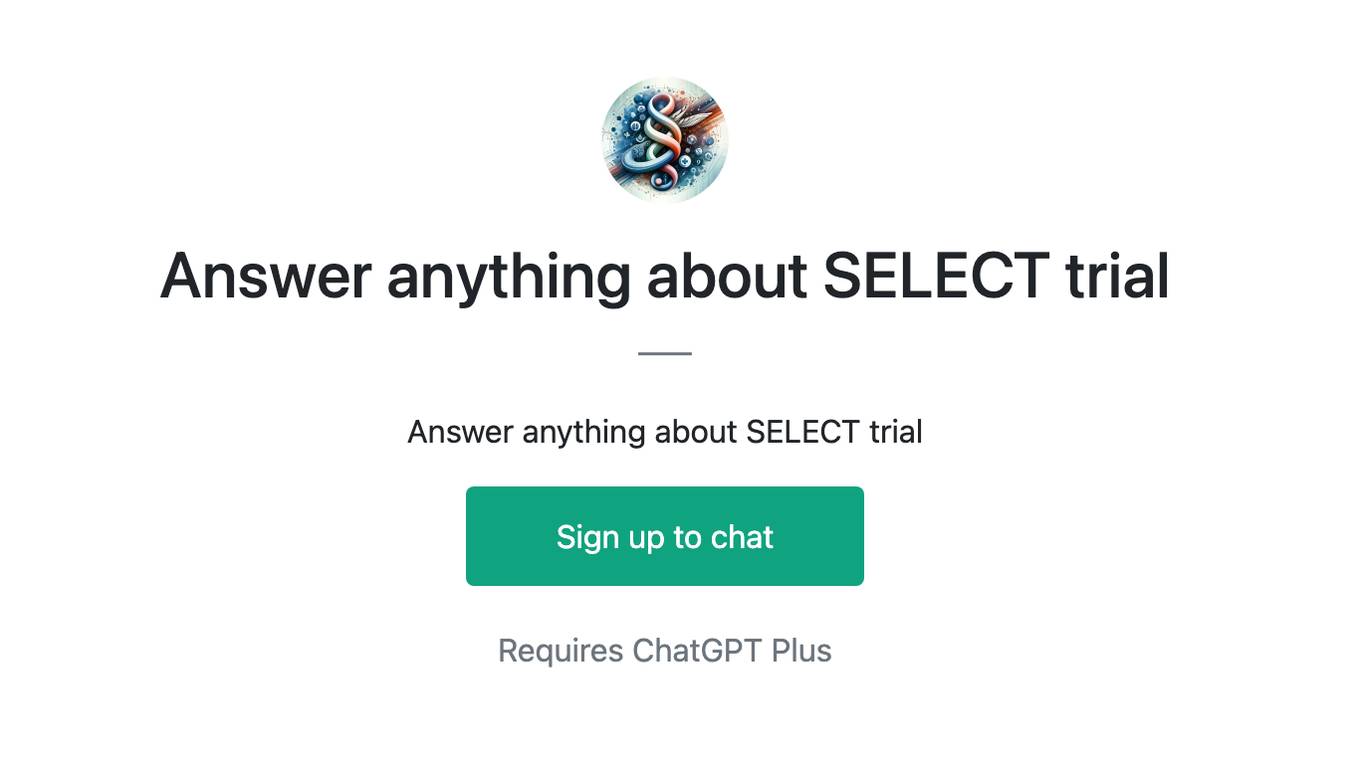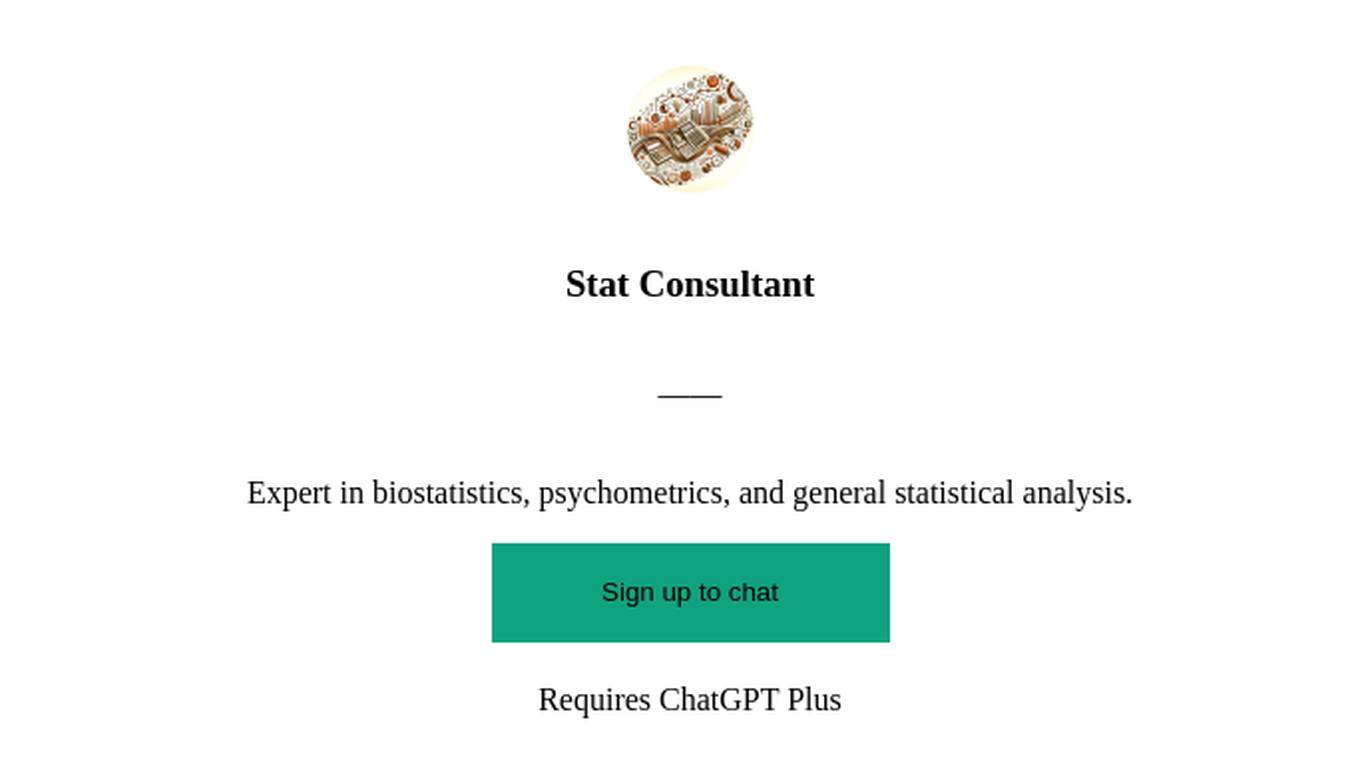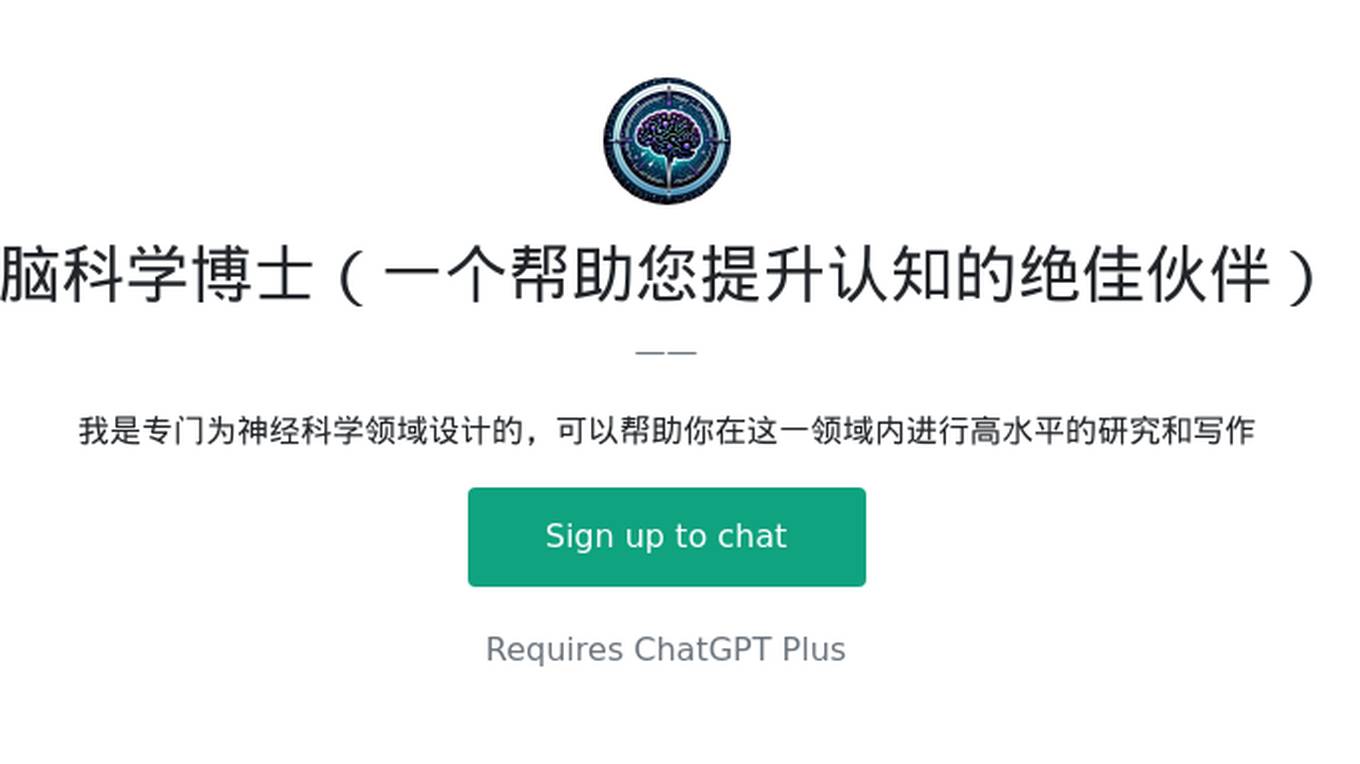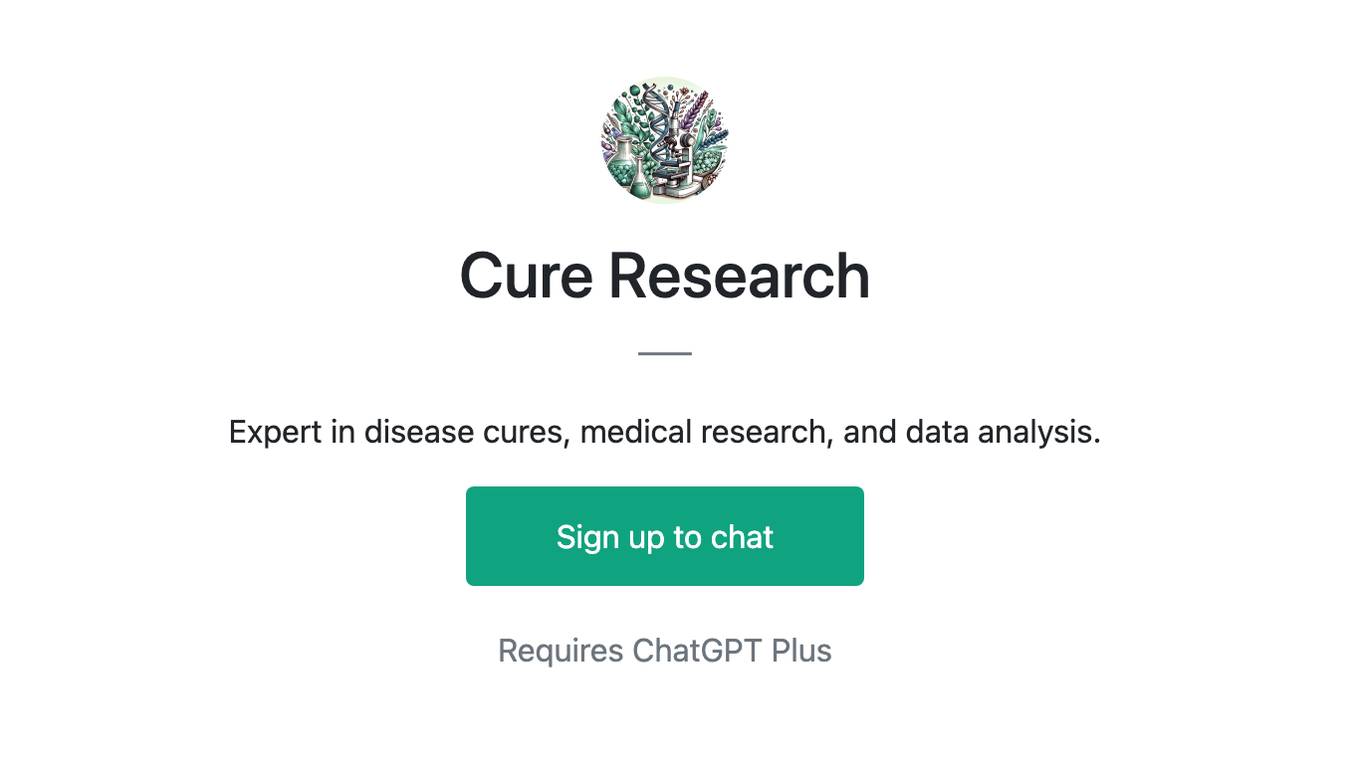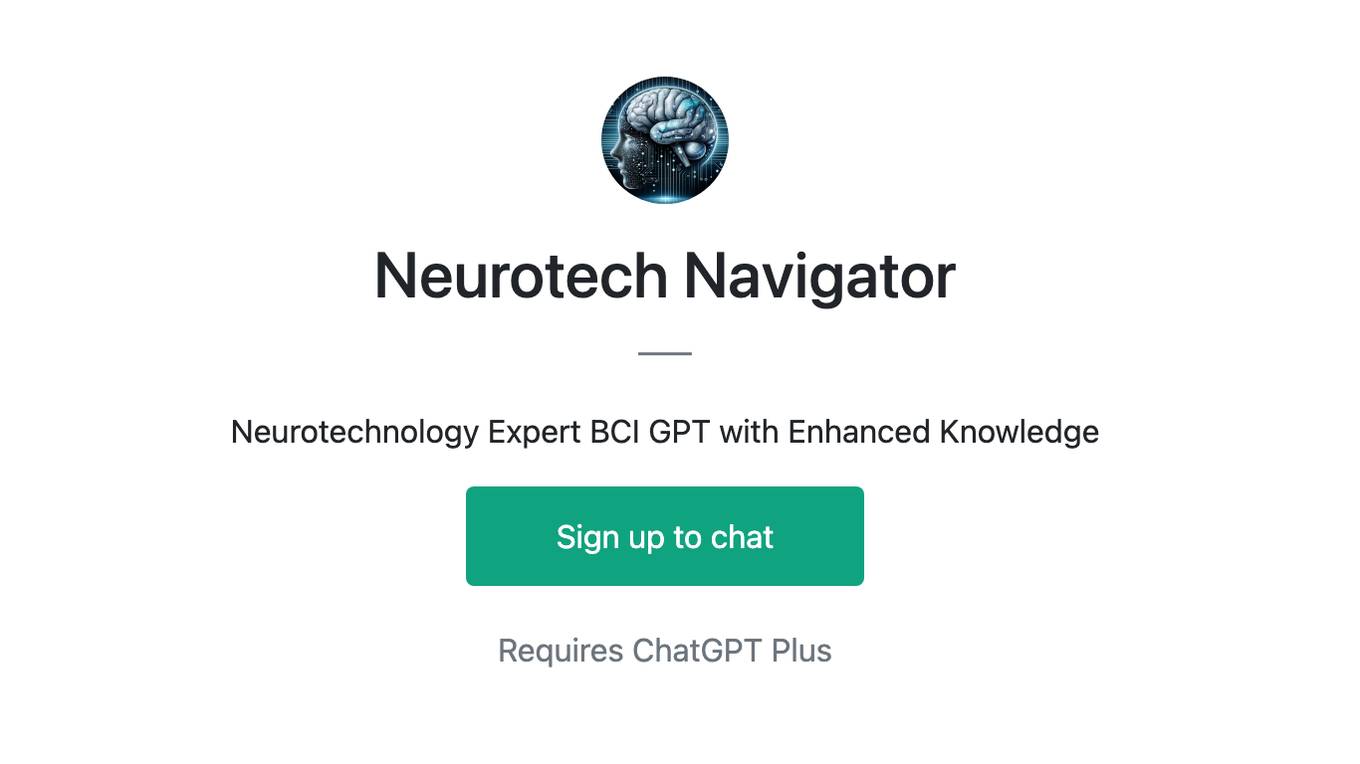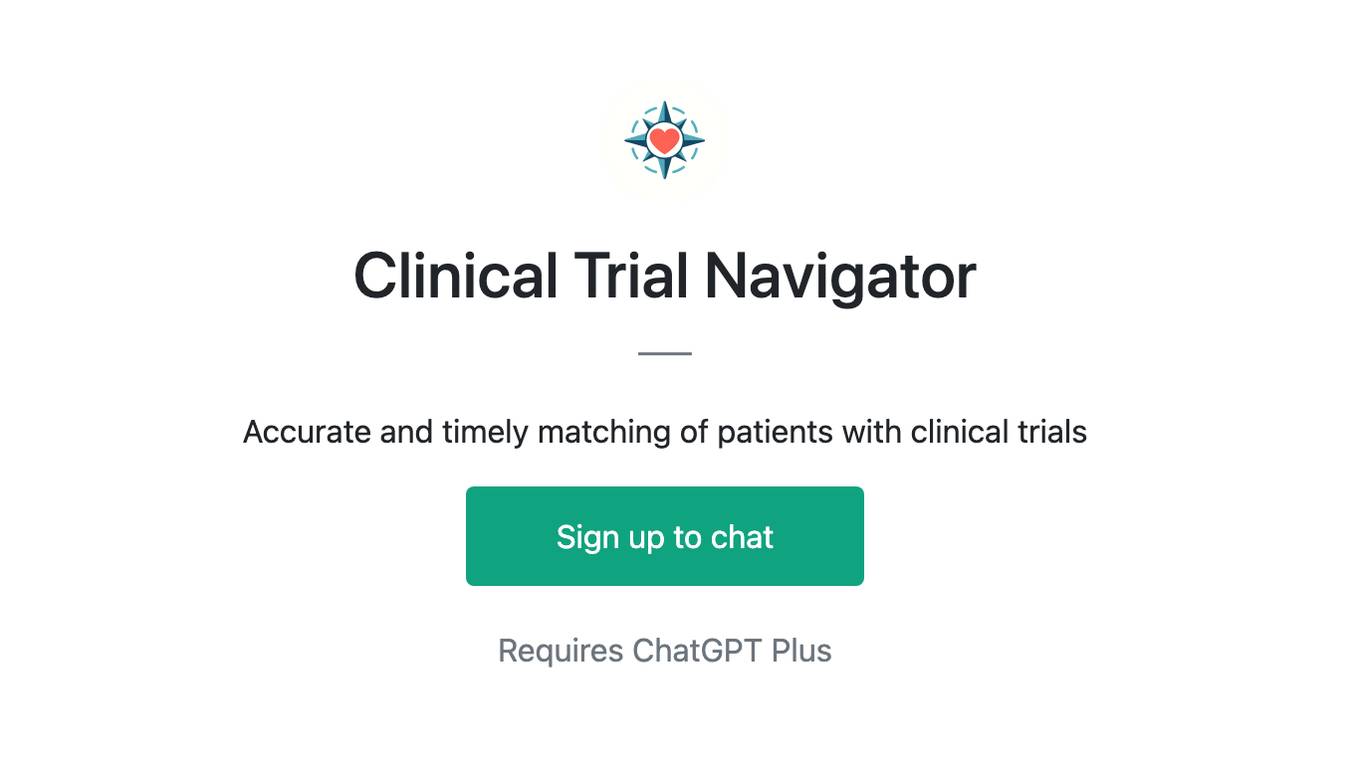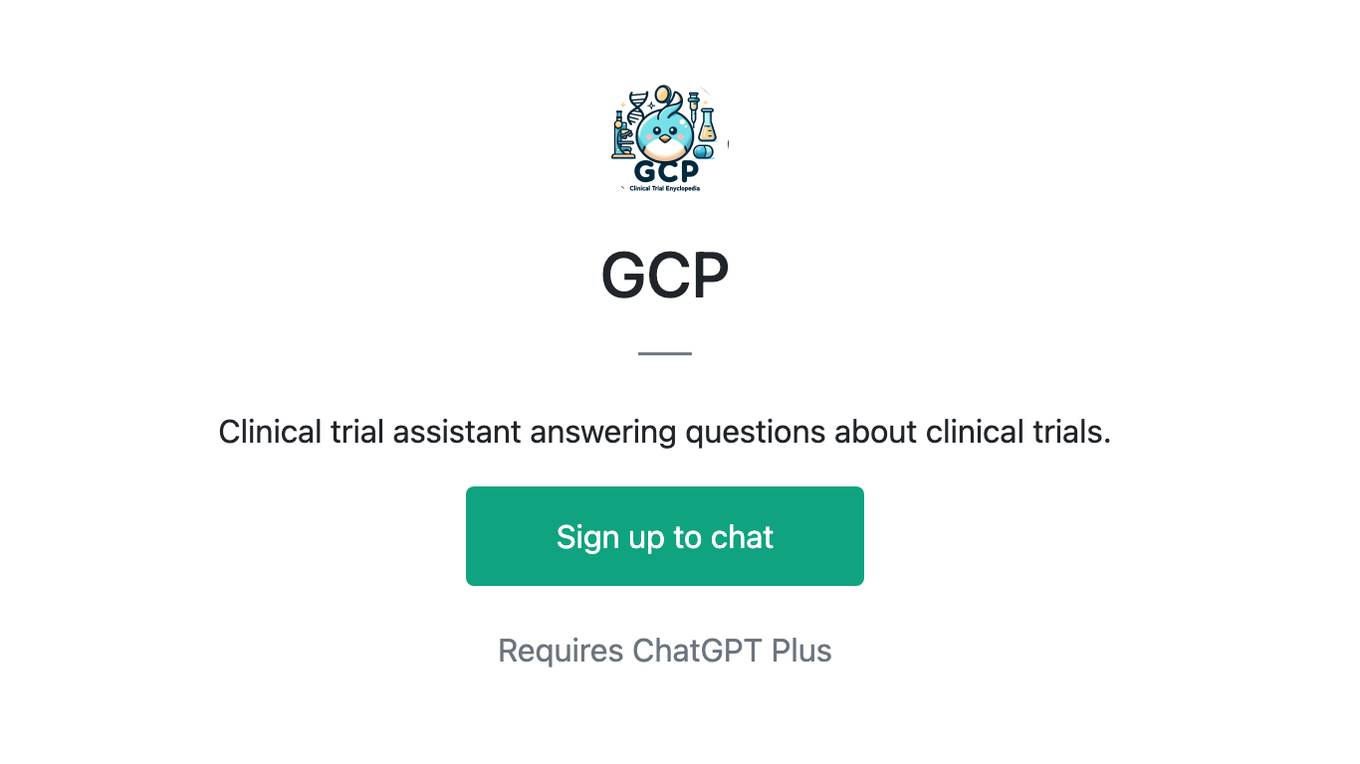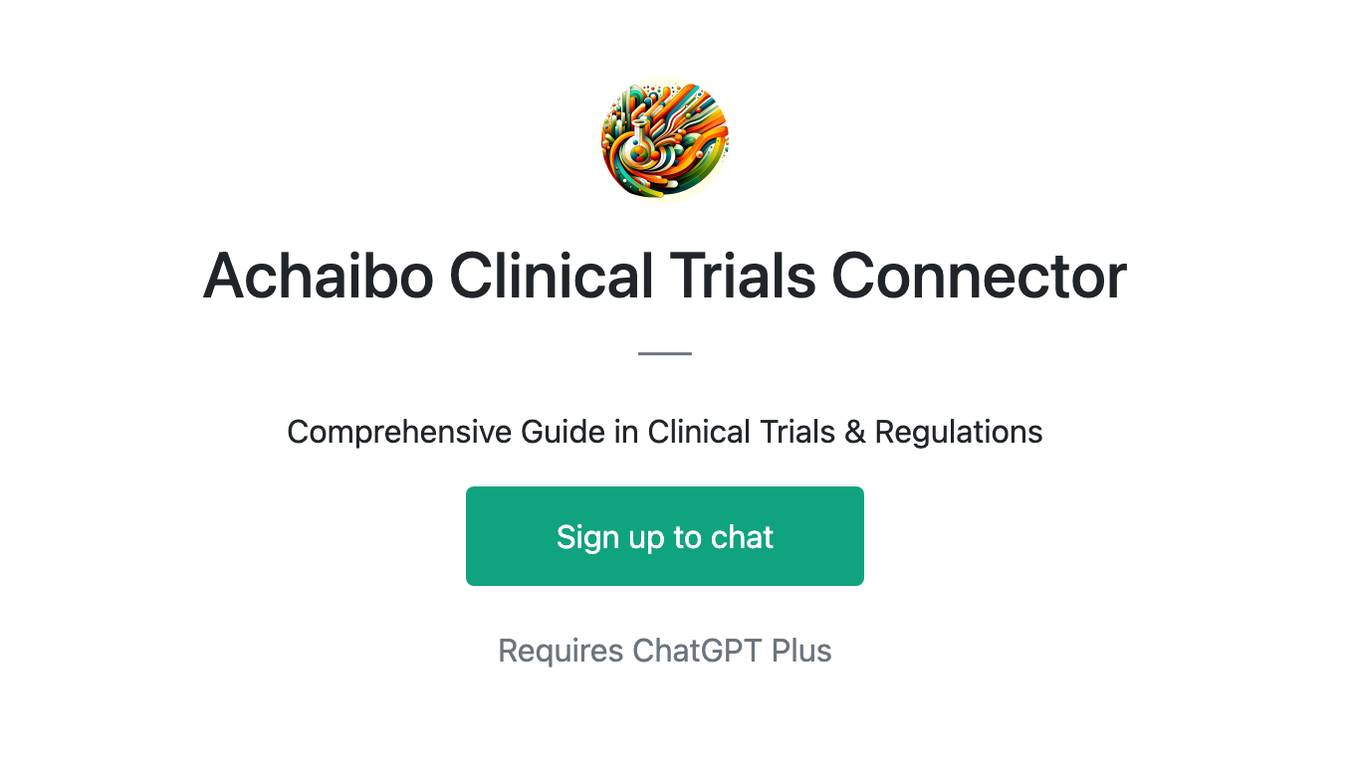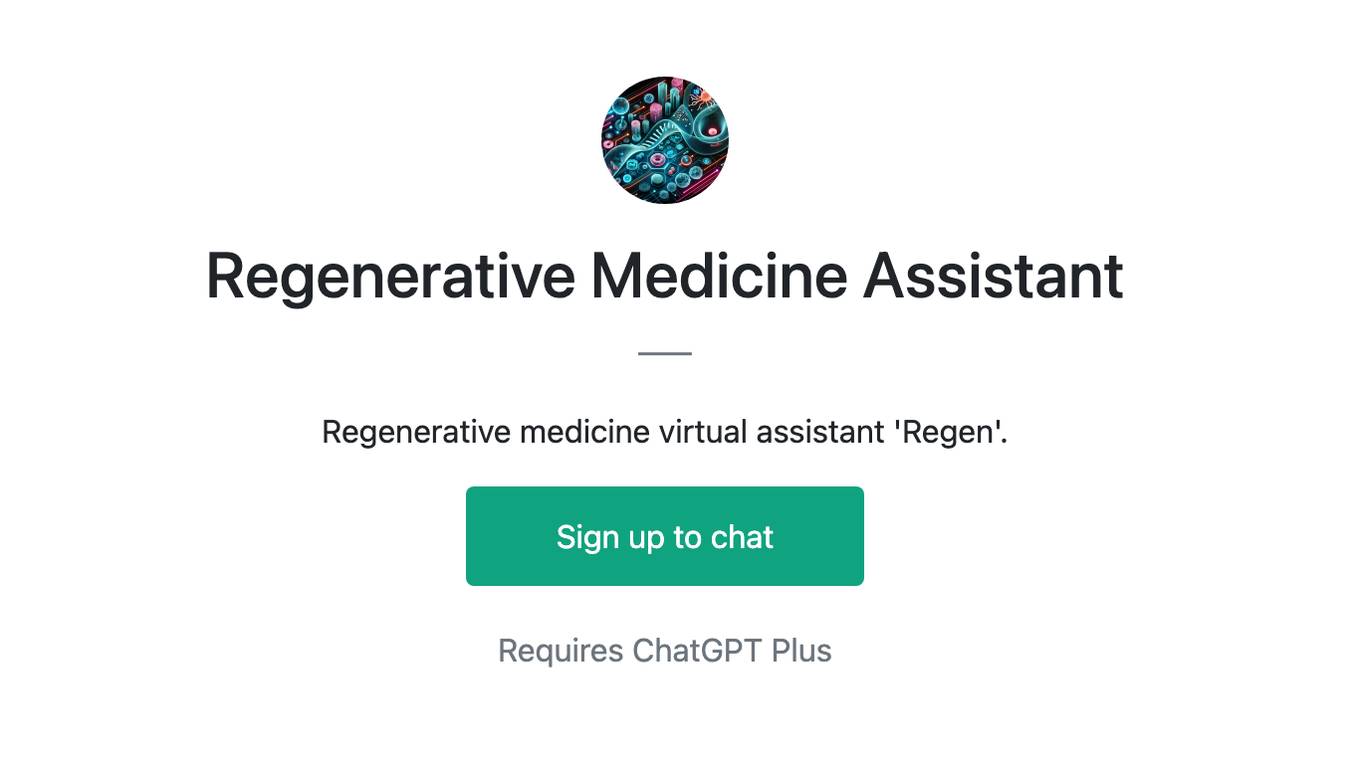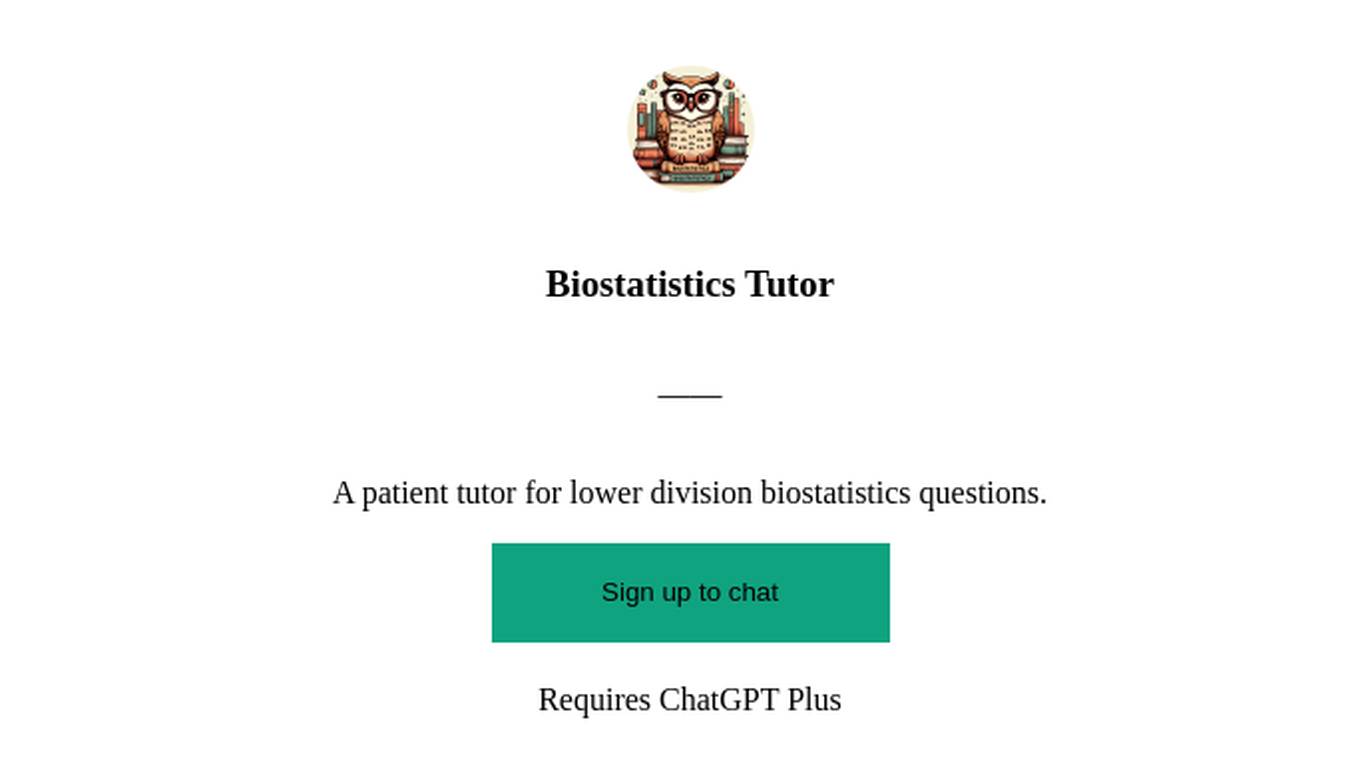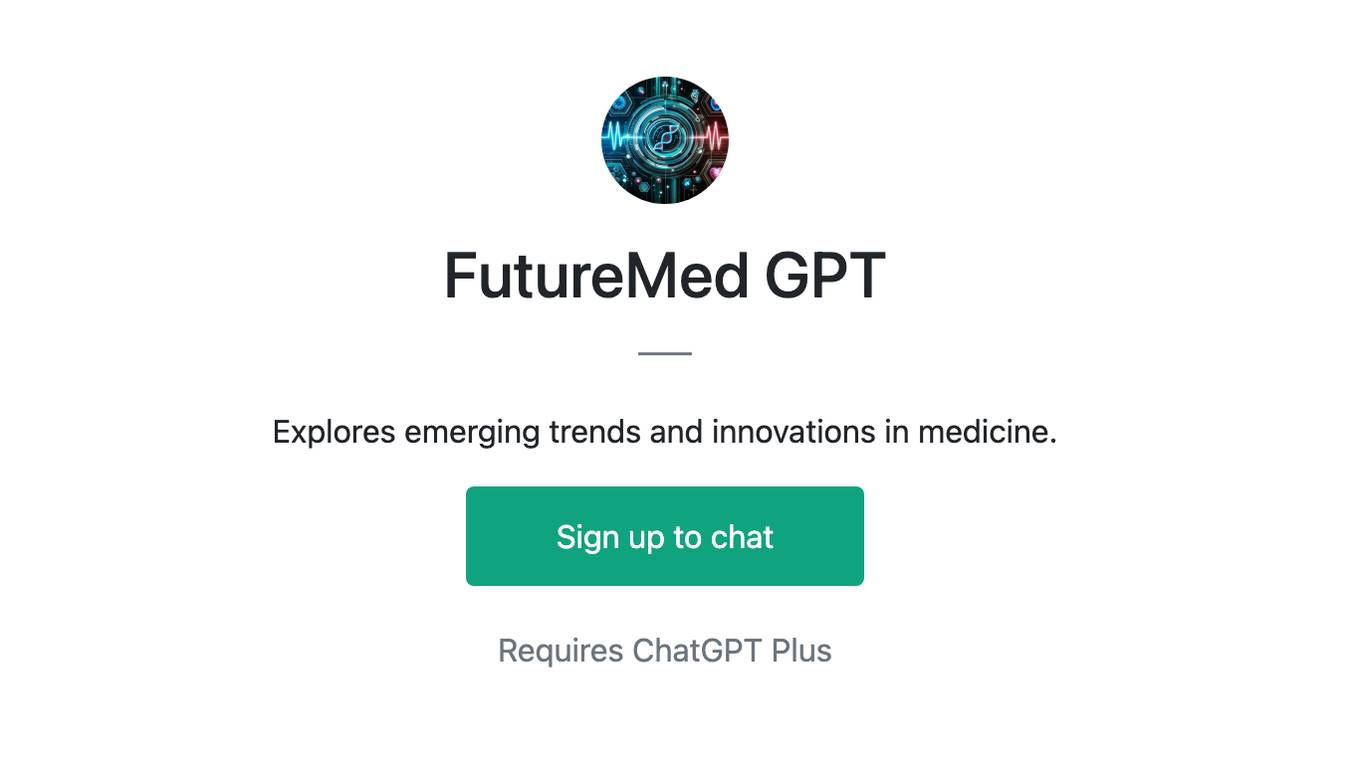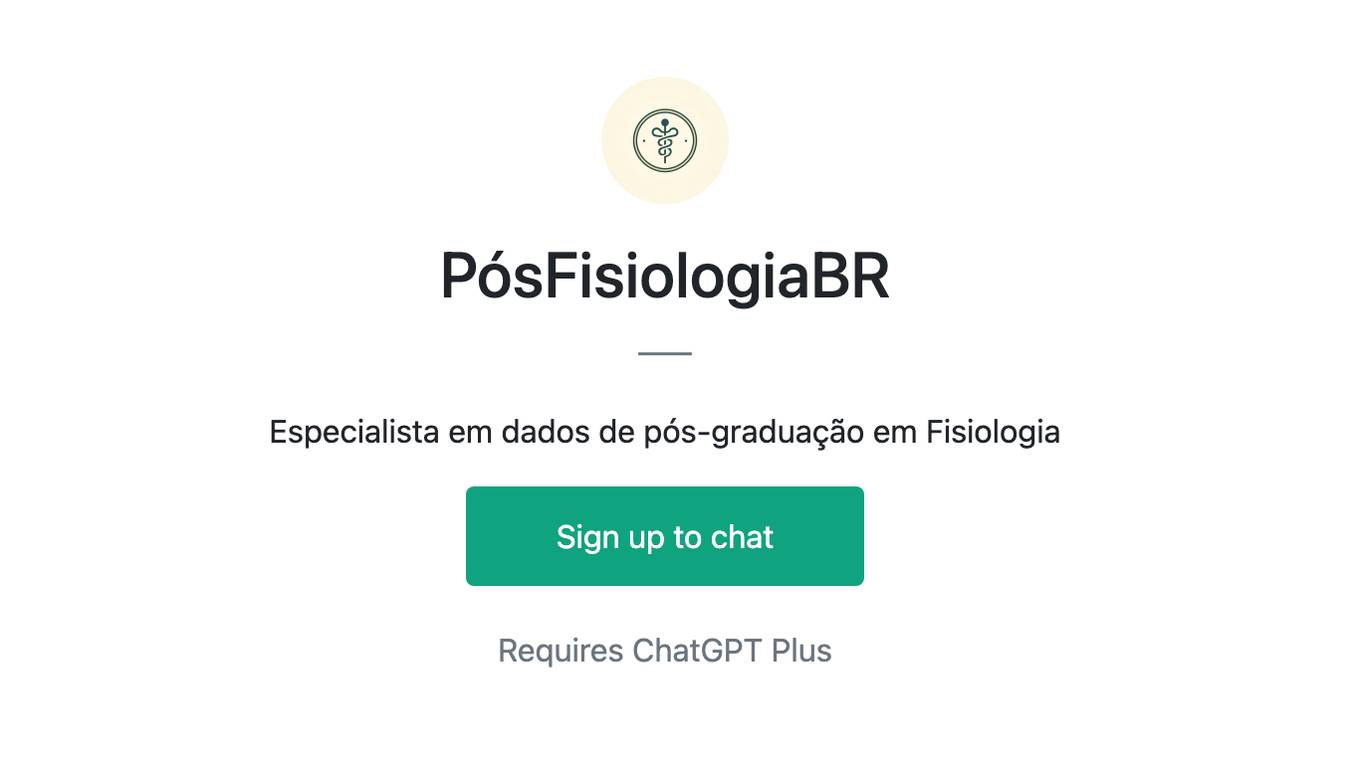Best AI tools for< Clinical Trial Design >
20 - AI tool Sites
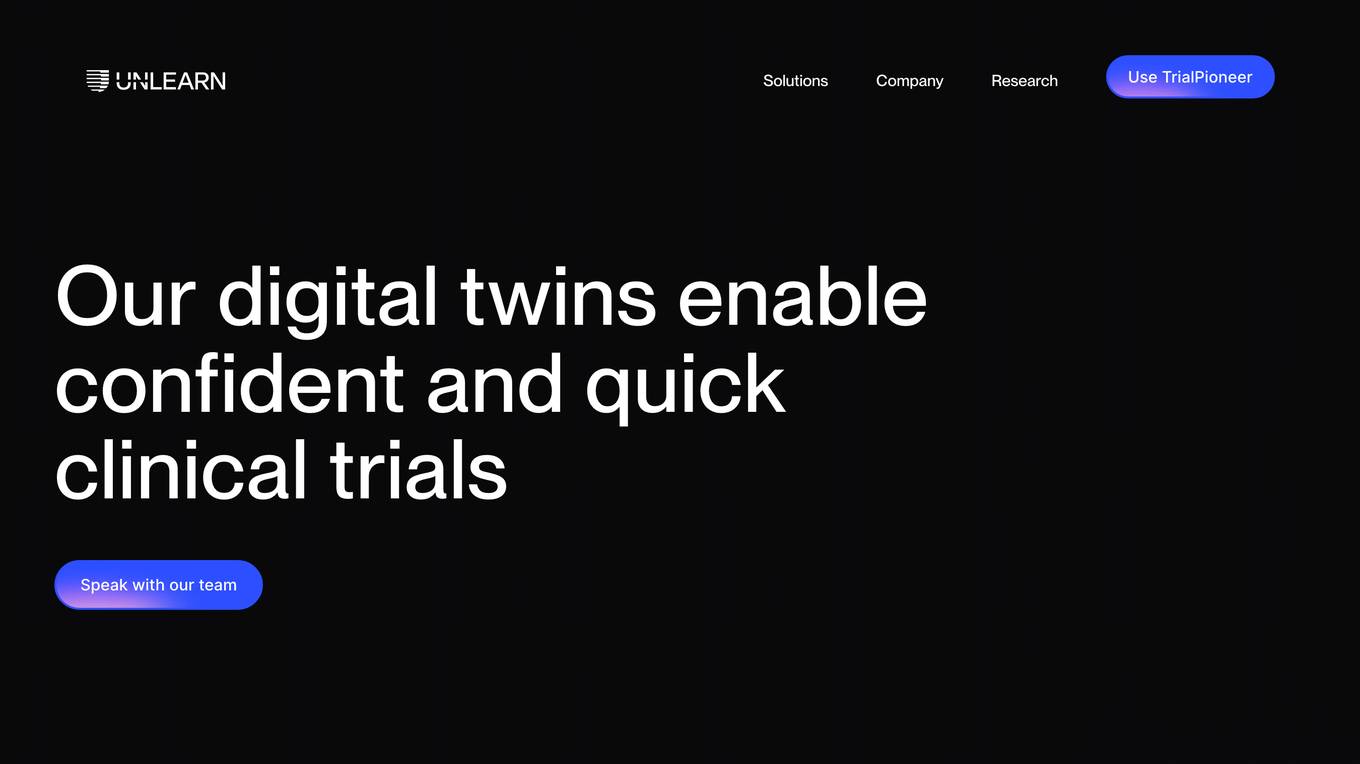
Unlearn.ai
Unlearn.ai is an AI-driven platform that specializes in streamlining clinical trials through the use of AI-generated digital twins of patients. By leveraging digital twin technology and disease-specific ML models, Unlearn.ai enables researchers to design and run more efficient and impactful clinical trials across various therapeutic areas. The platform offers solutions to accelerate trial timelines, facilitate faster decision-making, and optimize trial design, ultimately enhancing trial efficiency, insights, and impact.

Intelligencia AI
Intelligencia AI is a leading provider of AI-powered solutions for the pharmaceutical industry. Our suite of solutions helps de-risk and enhance clinical development and decision-making. We use a combination of data, AI, and machine learning to provide insights into the probability of success for drugs across multiple therapeutic areas. Our solutions are used by many of the top global pharmaceutical companies to improve their R&D productivity and make more informed decisions.
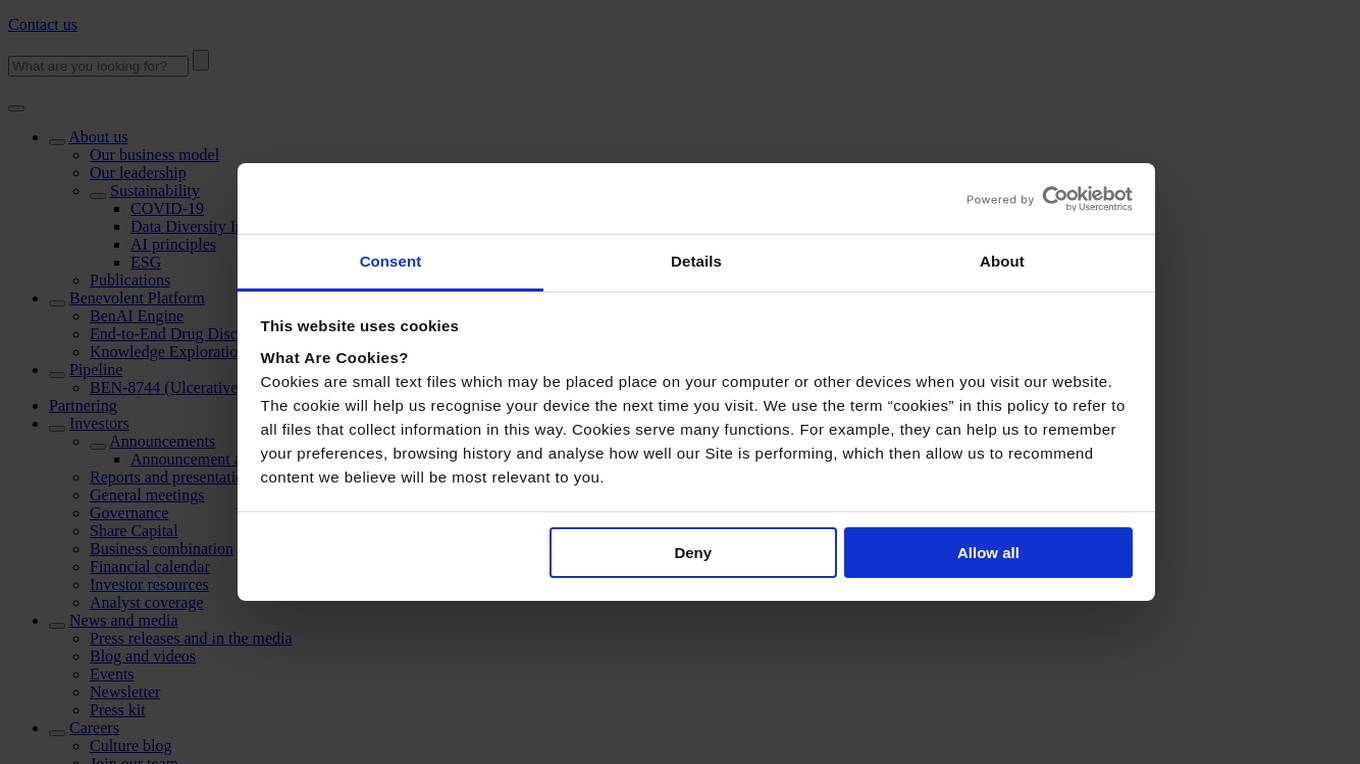
BenevolentAI
BenevolentAI is a leader in applying advanced AI to accelerate biopharma drug discovery blending science and technology with a focus on finding solutions for complex diseases. We empower both biopharmaceutical companies and our internal scientists to harness the full potential of data and AI to accelerate the next generation of scientific advances. We have built our AI-enabled drug discovery engine to drive a revolution in drug discovery. The Benevolent Platform™ unlocks the power of a vast biomedical data landscape to provide a multidimensional representation of human biology across all diseases. We believe this approach will improve the probability of clinical success, and help us deliver life-changing treatments to patients – because it matters.
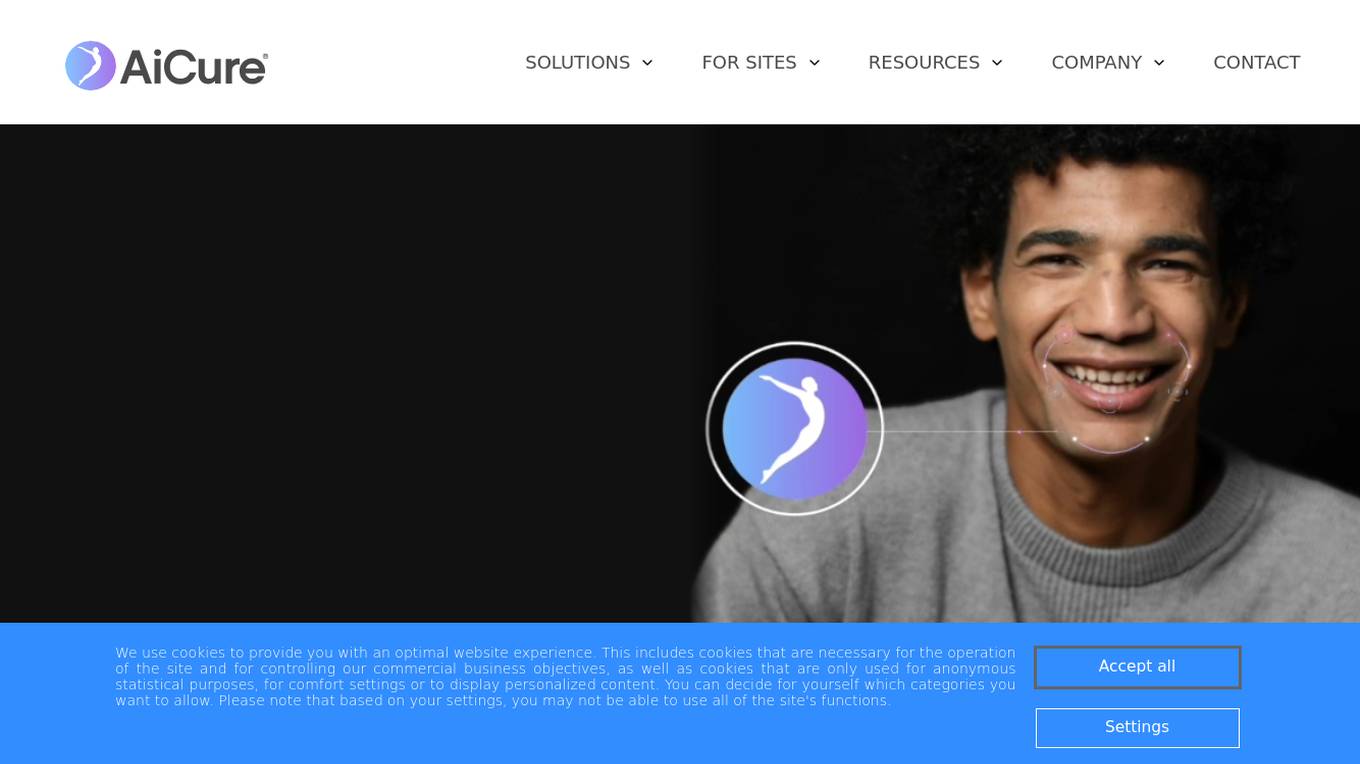
AiCure
AiCure provides a patient-centric eClinical trial management platform that enhances drug development through improved medication adherence rates, more powerful analysis and prediction of treatment response using digital biomarkers, and reduced clinical tech burden. AiCure's solutions support traditional, decentralized, or hybrid trials and offer flexibility to meet the needs of various research designs.
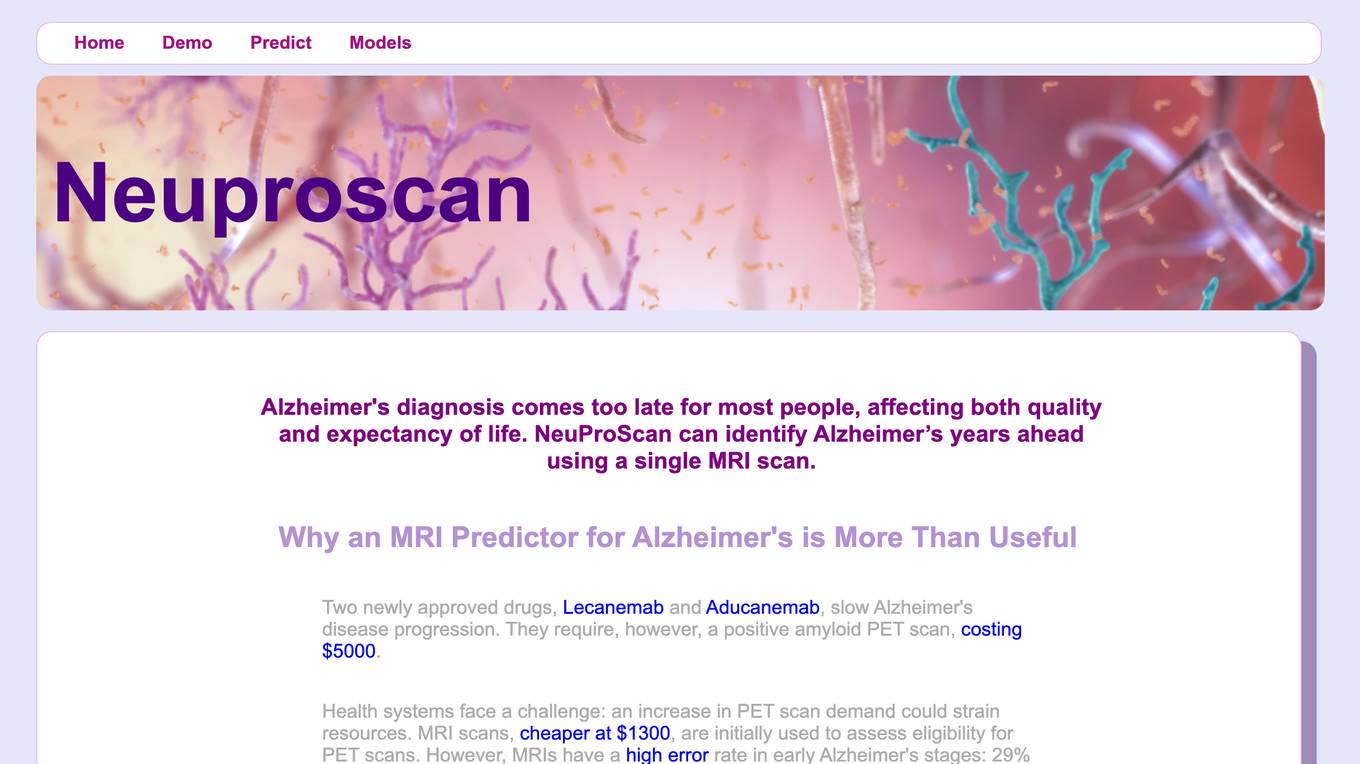
NeuProScan
NeuProScan is an AI platform designed for the early detection of pre-clinical Alzheimer's from MRI scans. It utilizes AI technology to predict the likelihood of developing Alzheimer's years in advance, helping doctors improve diagnosis accuracy and optimize the use of costly PET scans. The platform is fully customizable, user-friendly, and can be run on devices or in the cloud. NeuProScan aims to provide patients and healthcare systems with valuable insights for better planning and decision-making.
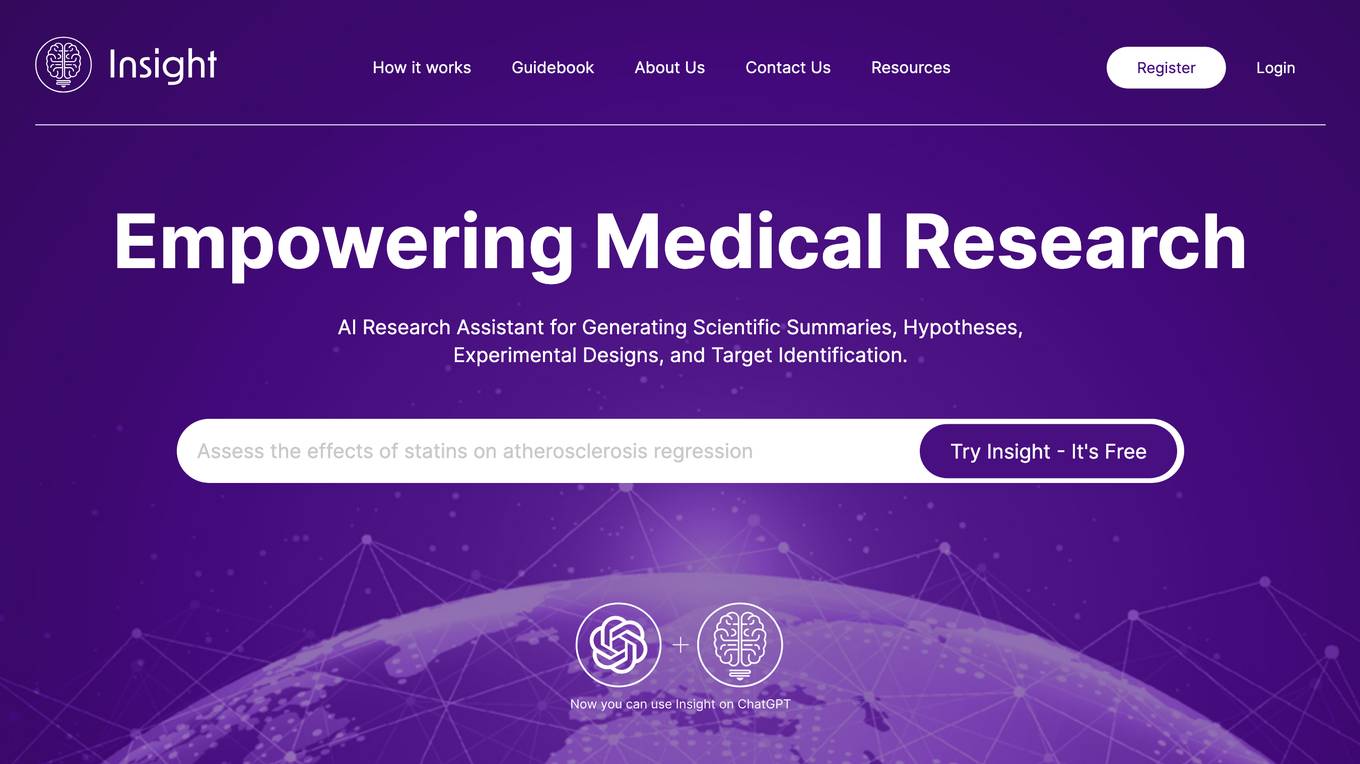
Insight
Insight is an AI-powered medical research tool that serves as a research assistant for generating scientific summaries, hypotheses, experimental designs, and target identification. It empowers scientists to navigate literature, formulate hypotheses, and design experiments by utilizing peer-reviewed databases to provide reliable outputs. With integrated features like NIH PubMed access, NIH Reporter insights, and MYGENE & MYVARIANT deep dives, Insight streamlines the research process and accelerates discoveries in the medical field.
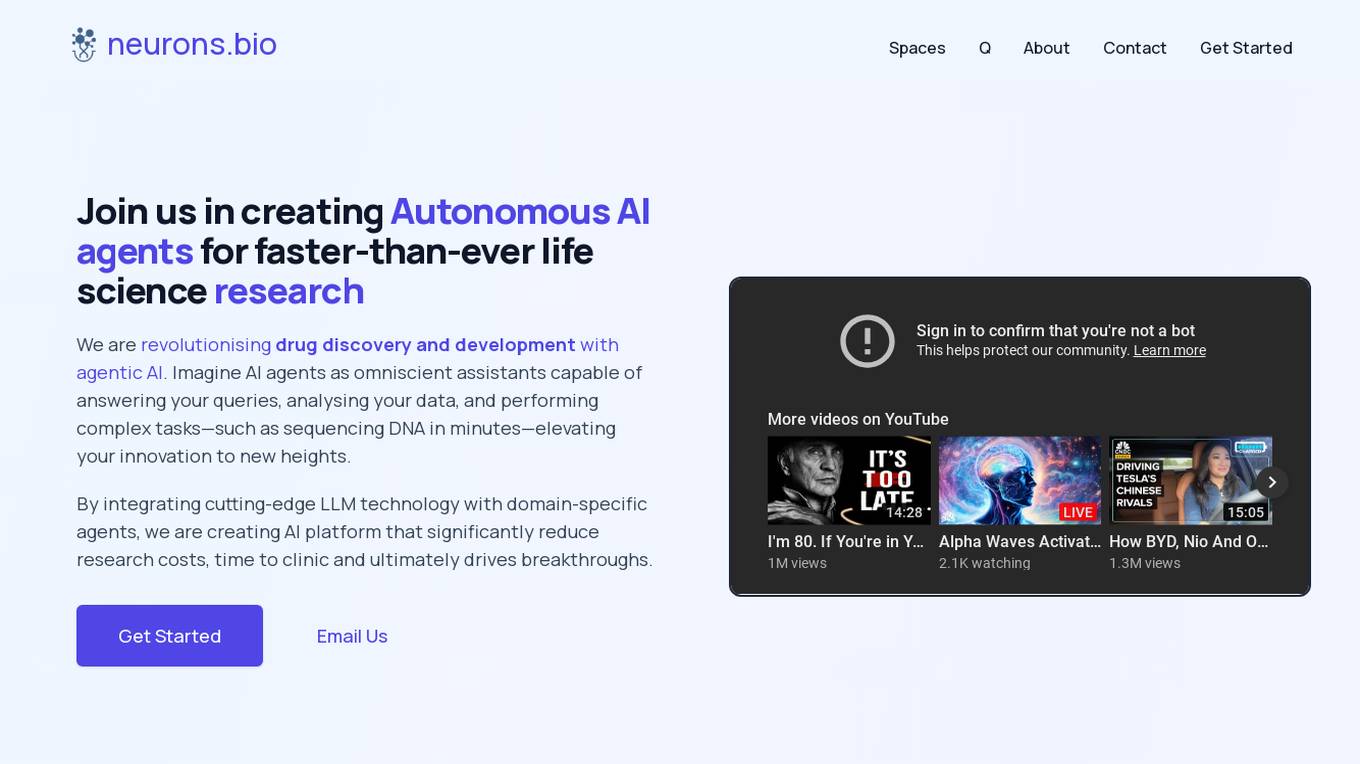
neurons.bio
neurons.bio is an AI application that offers a unique collection of over 100 AI agents designed for drug development, medicine, and life science research. These agents perform specific tasks efficiently, retrieve data from various sources, and provide insights to accelerate research processes. The platform aims to revolutionize drug discovery and development by integrating cutting-edge LLM technology with domain-specific agents, reducing research costs and time to clinic.
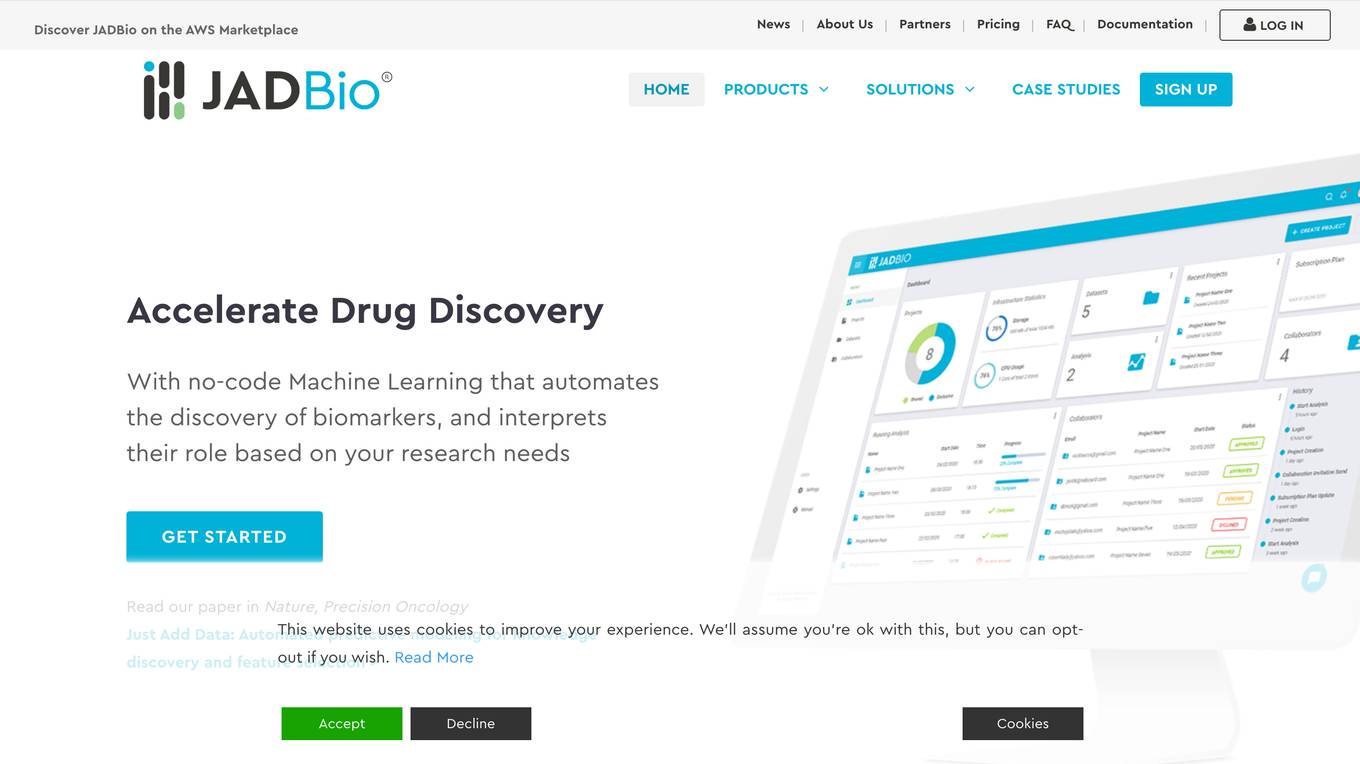
JADBio
JADBio is an automated machine learning (AutoML) platform designed to accelerate biomarker discovery and drug development processes. It offers a no-code solution that automates the discovery of biomarkers and interprets their role based on research needs. JADBio can parse multi-omics data, including genomics, transcriptome, metagenome, proteome, metabolome, phenotype/clinical data, and images, enabling users to efficiently discover insights for various conditions such as cancer, immune system disorders, chronic diseases, infectious diseases, and mental health. The platform is trusted by partners in precision health and medicine and is continuously evolving to disrupt drug discovery times and costs at all stages.
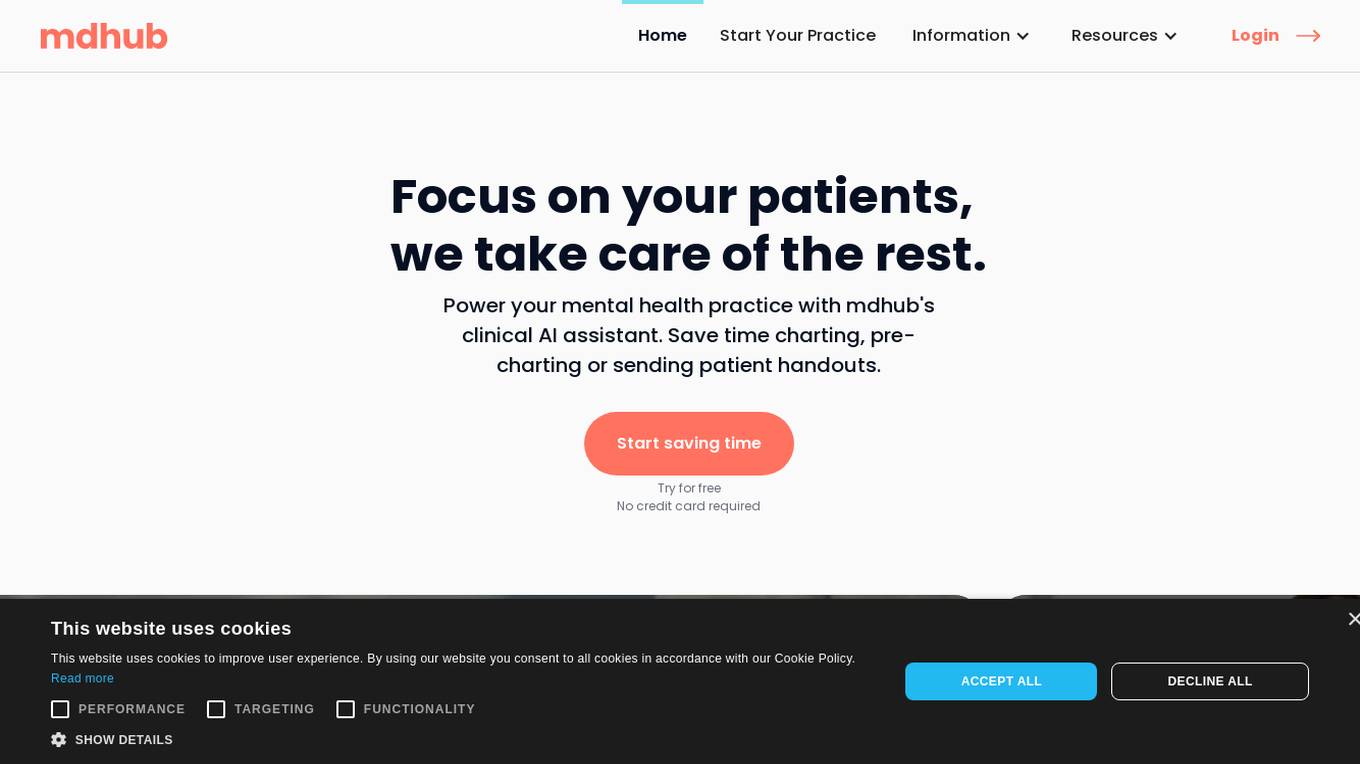
MDHub
MDHub is a clinical AI assistant designed to support behavioral health clinicians in their practice. It offers a user-friendly interface for seamless integration into workflows, time-saving features like instant audio transformation for charting, and personalized treatment plan recommendations. The application aims to enhance patient care by automating documentation tasks and improving efficiency in mental health practices.
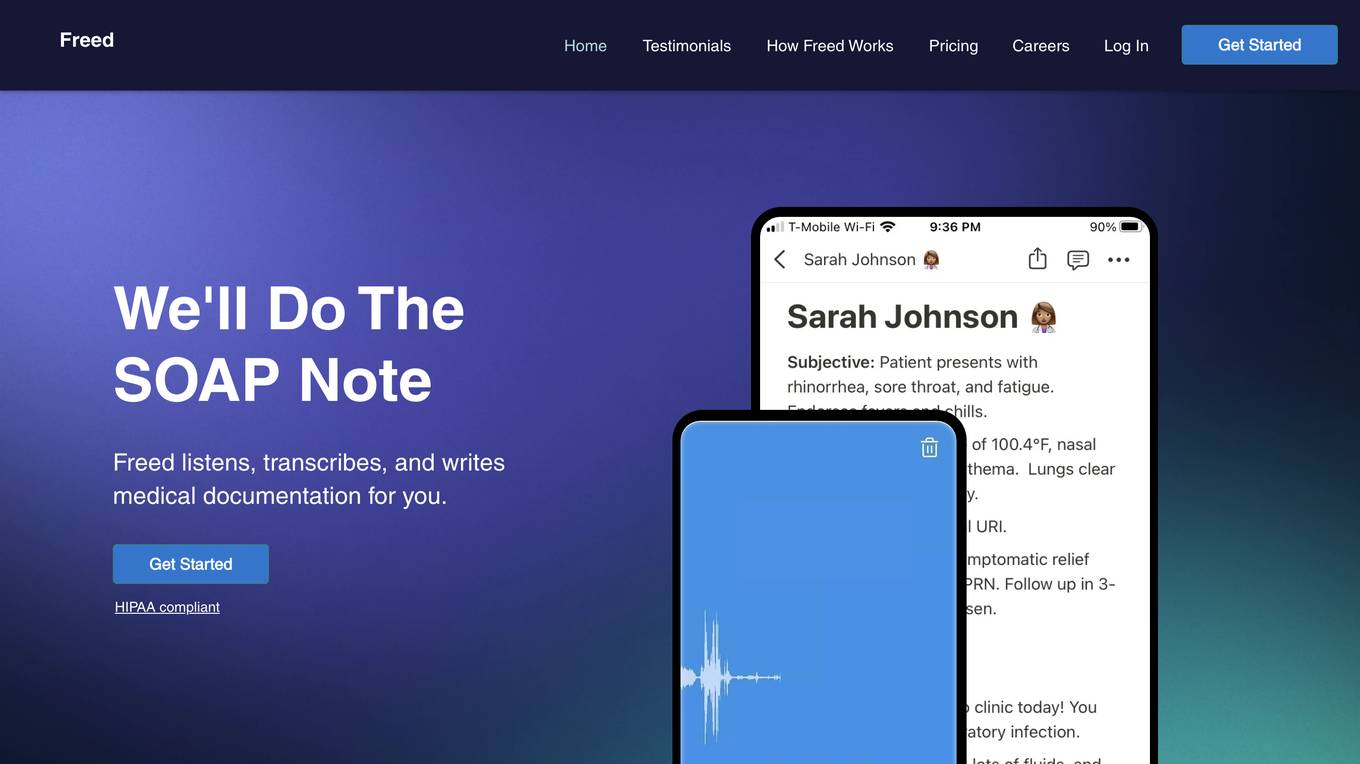
Freed
Freed is a purpose-built AI medical scribe application designed to assist clinicians in delivering accurate notes, improving workflow efficiency, and providing real-human support. It is a best-in-class AI scribe that saves clinicians time on clinical documentation, allowing them to focus more on patient care. Freed offers clinical-grade accuracy, innovative features that adapt to user preferences, and simplicity in generating notes for any specialty visit. The application is secure, HIPAA-compliant, and certified for SOC 2 and HITECH, ensuring data protection at all times. With a user-friendly interface and live clinician-focused support, Freed aims to make clinicians happier by streamlining their documentation process.

CBIIT
The National Cancer Institute's Center for Biomedical Informatics and Information Technology (CBIIT) provides a comprehensive suite of tools, resources, and training to support cancer data science research. These resources include data repositories, analytical tools, data standards, and training materials. CBIIT also develops and maintains the NCI Thesaurus, a comprehensive vocabulary of cancer-related terms, and the Cancer Data Standards Registry and Repository (caDSR), a repository of cancer data standards. CBIIT's mission is to accelerate the pace of cancer research by providing researchers with the tools and resources they need to access, analyze, and share cancer data.
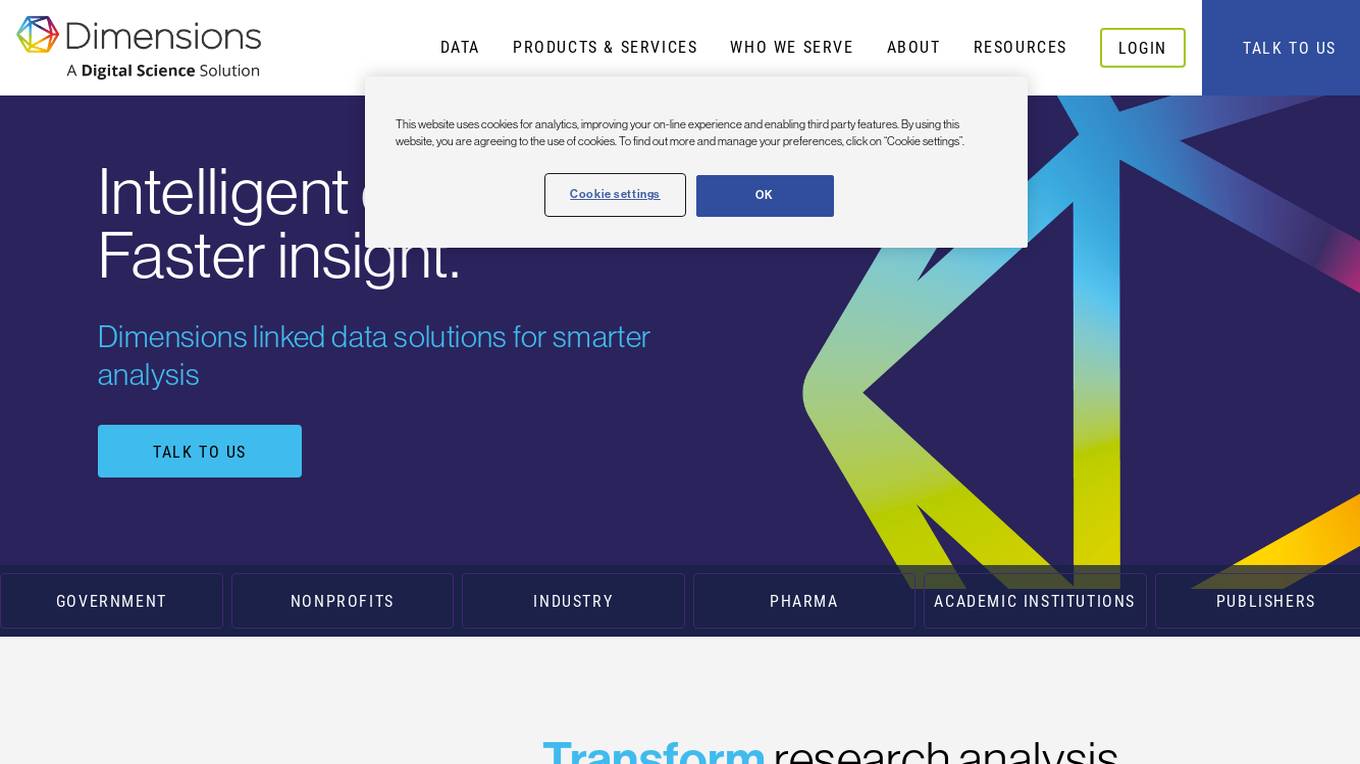
Dimensions AI
Dimensions AI is an advanced scientific research database that provides a suite of research applications and time-saving solutions for intelligent discovery and faster insight. It hosts the largest collection of interconnected global research data, including publications, clinical trials, patents, policy documents, grants, datasets, and online citations. The platform offers easy-to-understand visualizations, purpose-built applications, and integrated AI technology to speed up research interpretation and analysis. Dimensions is designed to propel research by connecting the dots across the research ecosystem and saving researchers hours of time.
Beacon Biosignals
Beacon Biosignals provides an EEG neurobiomarker platform that is designed to accelerate clinical trials and enable new treatments for patients with neurological and psychiatric diseases. Their platform is powered by machine learning and a world-class clinico-EEG database, which allows them to analyze existing EEG data for insights into mechanisms, PK/PD, and patient stratification. This information can be used to guide further development efforts, optimize clinical trials, and enhance understanding of treatment efficacy.
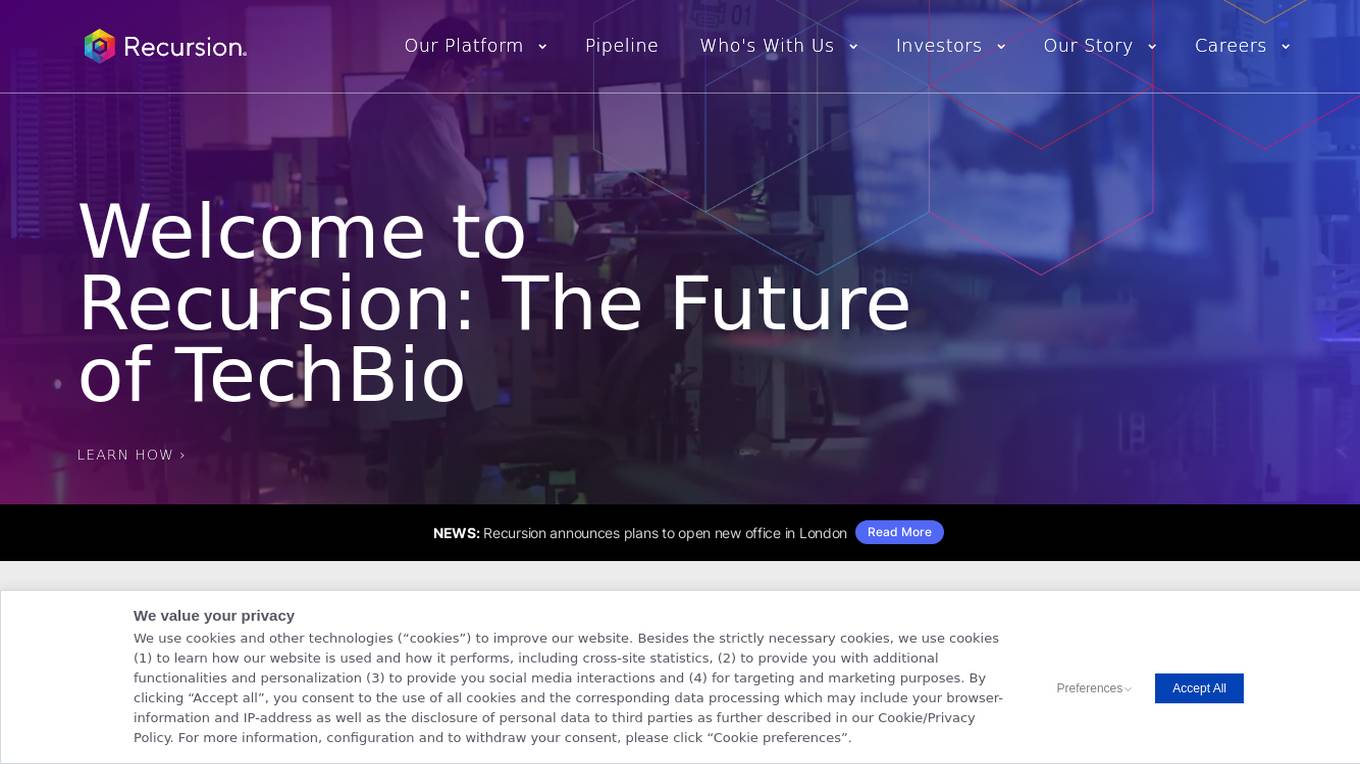
Recursion
Recursion is a techbio company that uses artificial intelligence to accelerate drug discovery. The company's platform combines hardware, software, and data to create a more efficient and effective drug discovery process. Recursion has a broad pipeline of drug candidates in development, and it has partnered with several leading pharmaceutical companies. The company is headquartered in Salt Lake City, Utah.
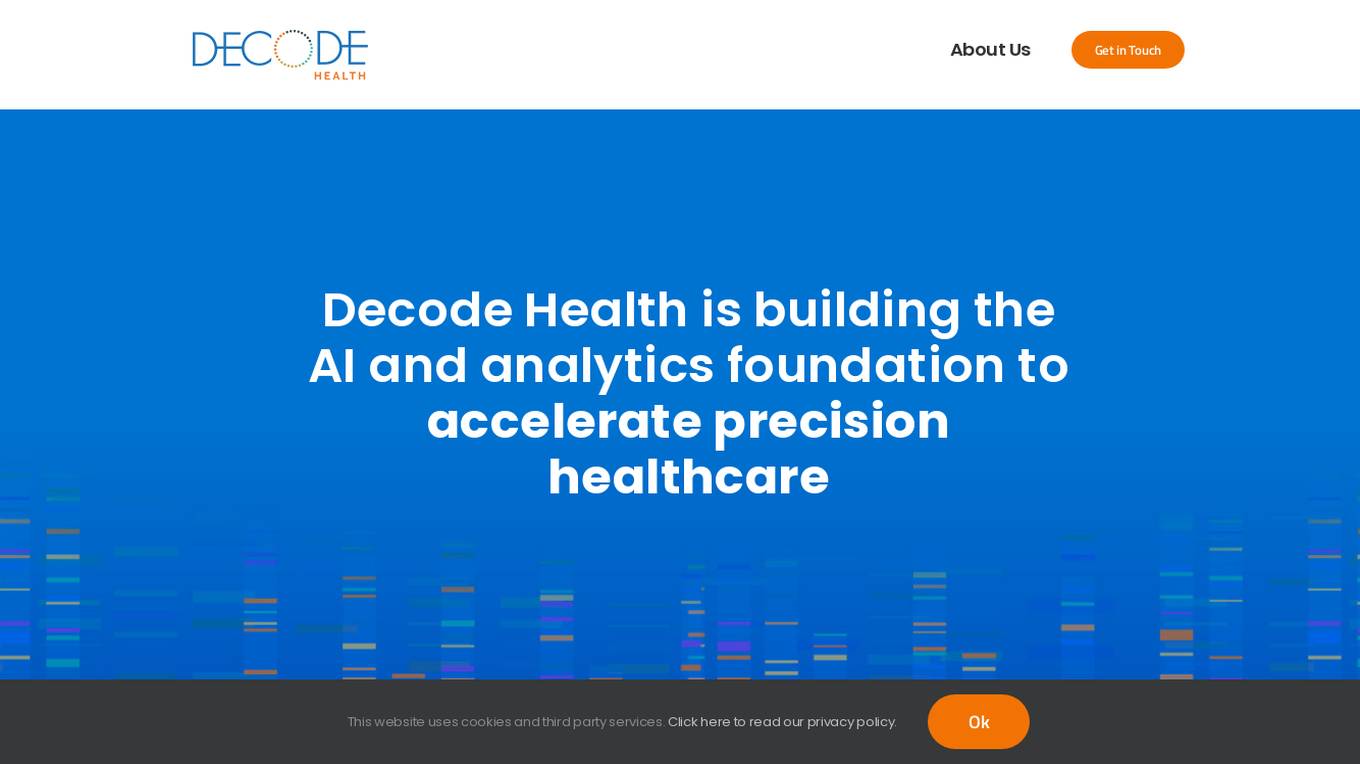
Decode Health
Decode Health is an AI and analytics platform that accelerates precision healthcare by supporting healthcare teams in launching machine learning and advanced analytics projects. The platform collaborates with pharmaceutical companies to enhance patient selection, biomarker identification, diagnostics development, data asset creation, and analysis. Decode Health offers modules for biomarker discovery, patient recruitment, next-generation sequencing, data analysis, and clinical decision support. The platform aims to provide fast, accurate, and actionable insights for acute and chronic disease management. Decode Health's custom-built modules are designed to work together to solve complex data problems efficiently.
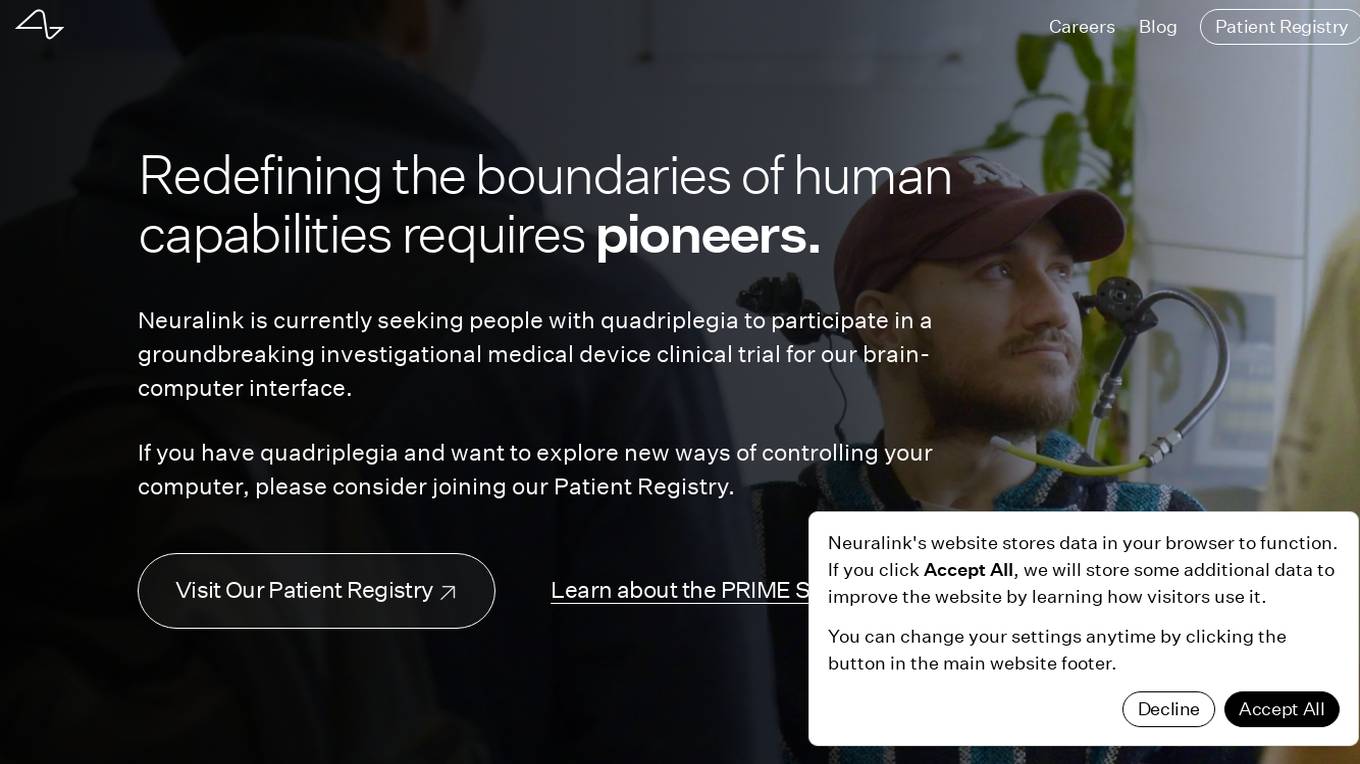
Neuralink
Neuralink is a pioneering brain-computer interface (BCI) application that aims to redefine human capabilities by creating a generalized brain interface to restore autonomy to individuals with unmet medical needs. The application focuses on developing fully implantable BCIs that allow users, particularly those with quadriplegia, to control computers and mobile devices using their thoughts. Neuralink's innovative technology includes advanced chips, biocompatible enclosures, and surgical robots for precise implantation. The application prioritizes safety, accessibility, and reliability in its engineering process, with future goals of restoring vision, motor function, and speech capabilities.
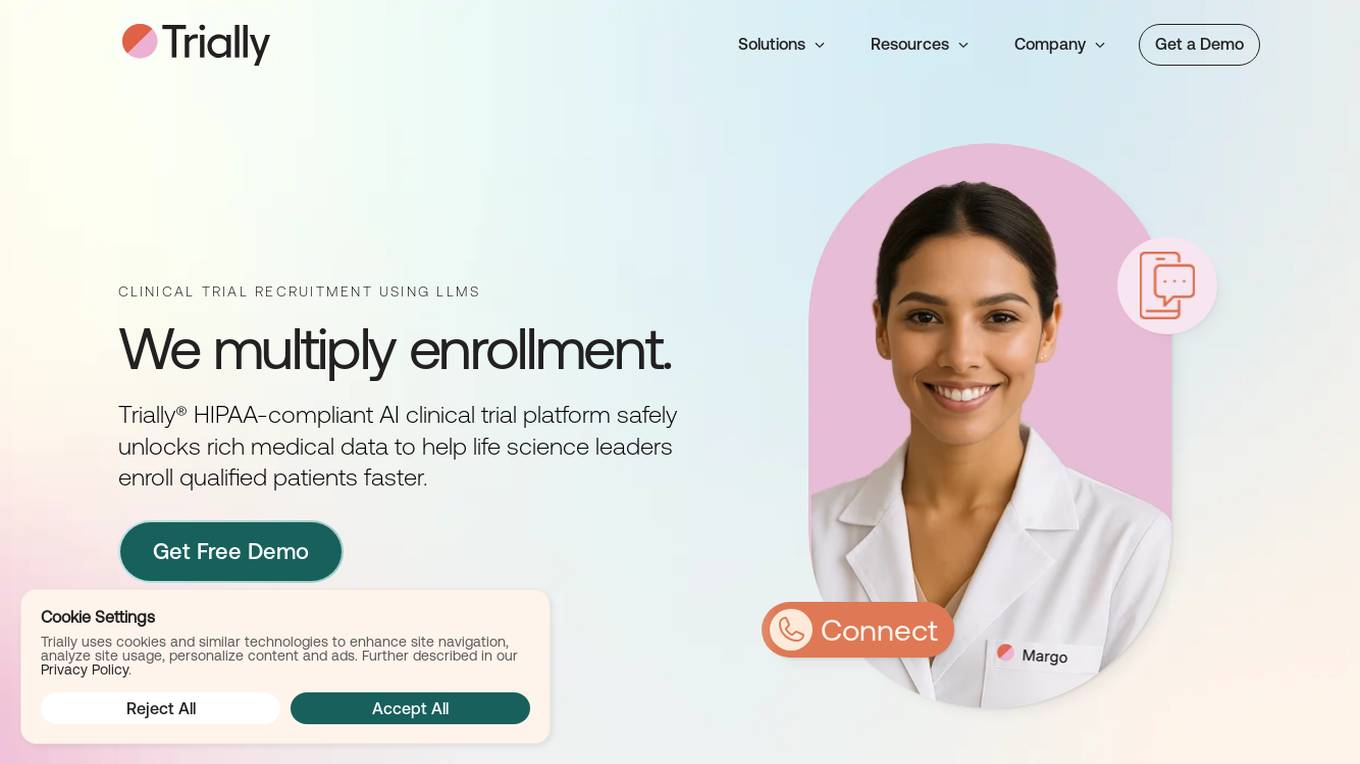
Trially AI
Trially AI is a HIPAA-compliant AI clinical trial platform that leverages advanced technology to help life science leaders enroll qualified patients faster. The platform uses AI algorithms to unlock rich medical data, match patients to trials, and improve enrollment rates. Trially AI is proven to deliver superior results 4x faster than other technology providers, with features like multiplying enrollment, reducing screen fails, and increasing eligibility accuracy. It benefits sponsors, CROs, research sites, and hospitals by improving enrollment rates, saving time on chart reviews, and enhancing site success outcomes.
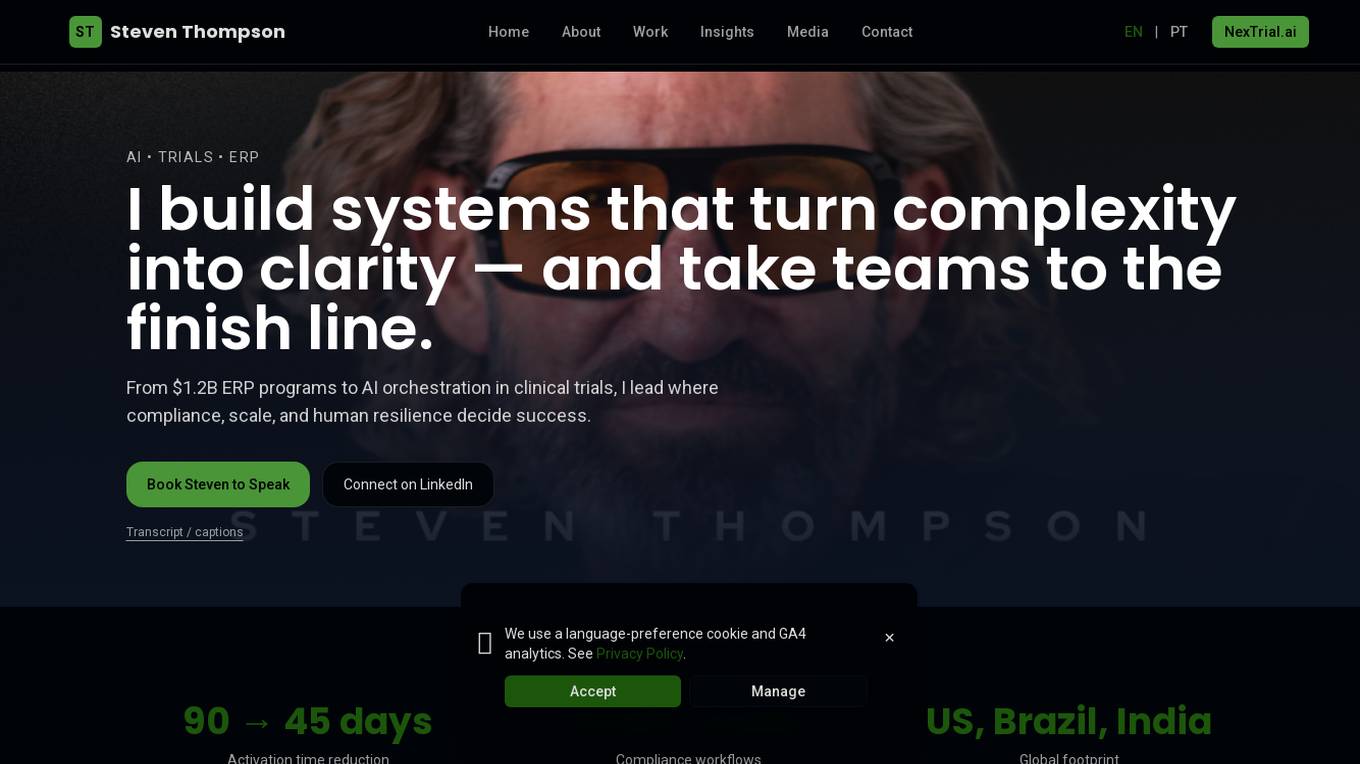
Steven Thompson AI HealthTech Leader
Steven Thompson is an AI HealthTech Leader specializing in Trial Orchestration. He builds systems that simplify complexity and lead teams to success, from large ERP programs to AI orchestration in clinical trials. The website showcases his expertise in compliance, scale, and human resilience, offering insights, case studies, and speaking engagements related to AI, trials, and ERP. Steven's approach emphasizes audit readiness, human-in-loop AI, and a focus on finishing strong. The site serves as a platform for industry leaders seeking transformation and measurable outcomes in their projects.
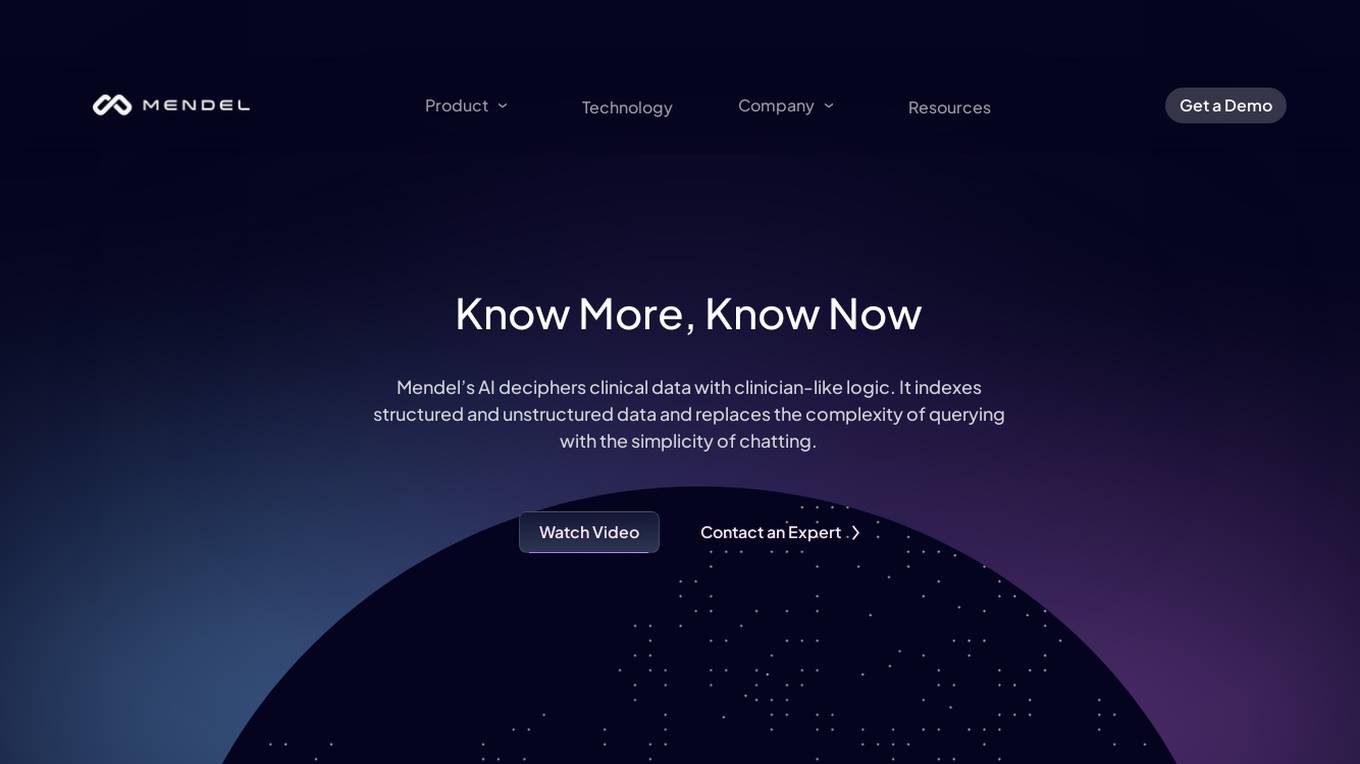
Mendel AI
Mendel AI is an advanced clinical AI tool that deciphers clinical data with clinician-like logic. It offers a fully integrated suite of clinical-specific data processing products, combining OCR, de-identification, and clinical reasoning to interpret medical records. Users can ask questions in plain English and receive accurate answers from health records in seconds. Mendel's technology goes beyond traditional AI by understanding patient-level data and ensuring consistency and explainability of results in healthcare.
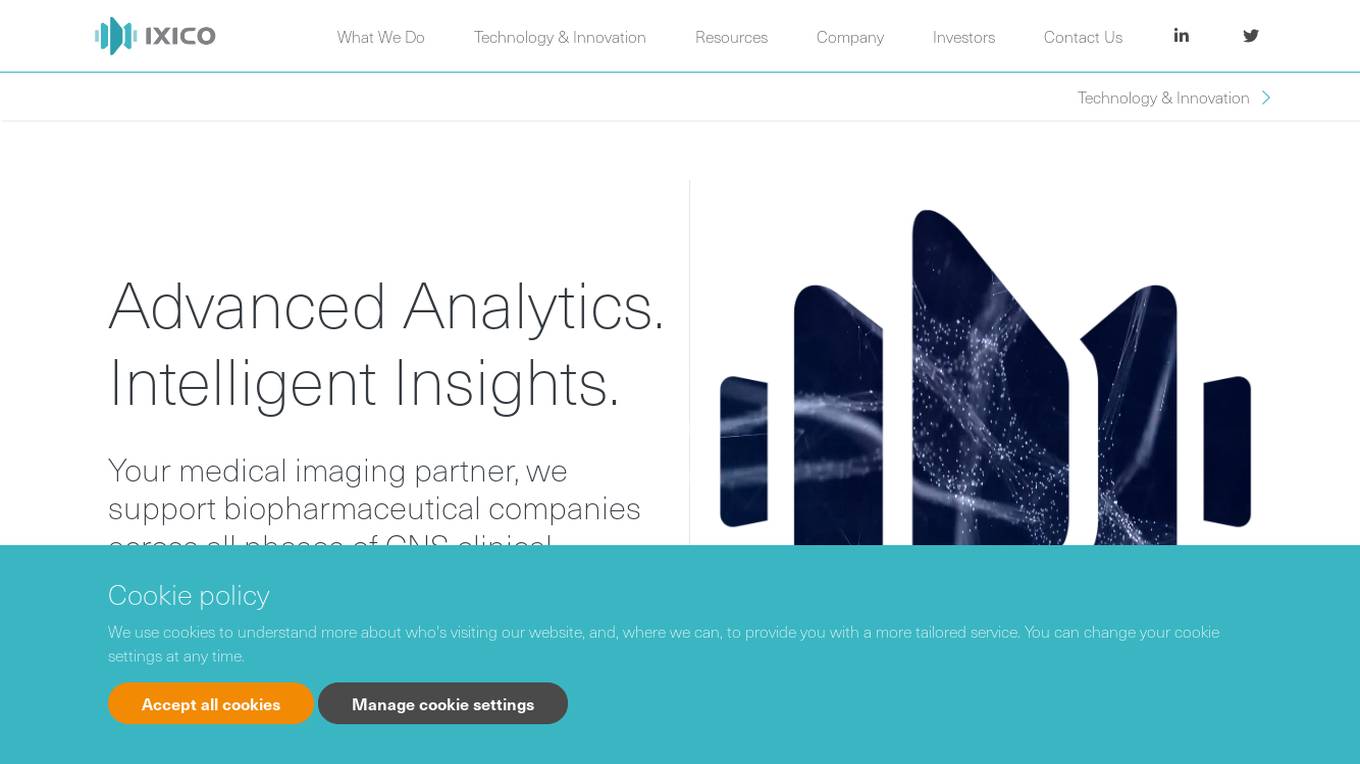
IXICO
IXICO is a precision analytics company specializing in intelligent insights in neuroscience. They offer a range of services for drug development analytics, imaging operations, and post-marketing consultancy. With a focus on technology and innovation, IXICO provides expertise in imaging biomarkers, radiological reads, volumetric MRI, PET & SPECT, and advanced MRI. Their TrialTracker platform and Assessa tool utilize innovation and AI for disease modeling and analysis. IXICO supports biopharmaceutical companies in CNS clinical research with cutting-edge neuroimaging techniques and AI technology.
0 - Open Source AI Tools
20 - OpenAI Gpts
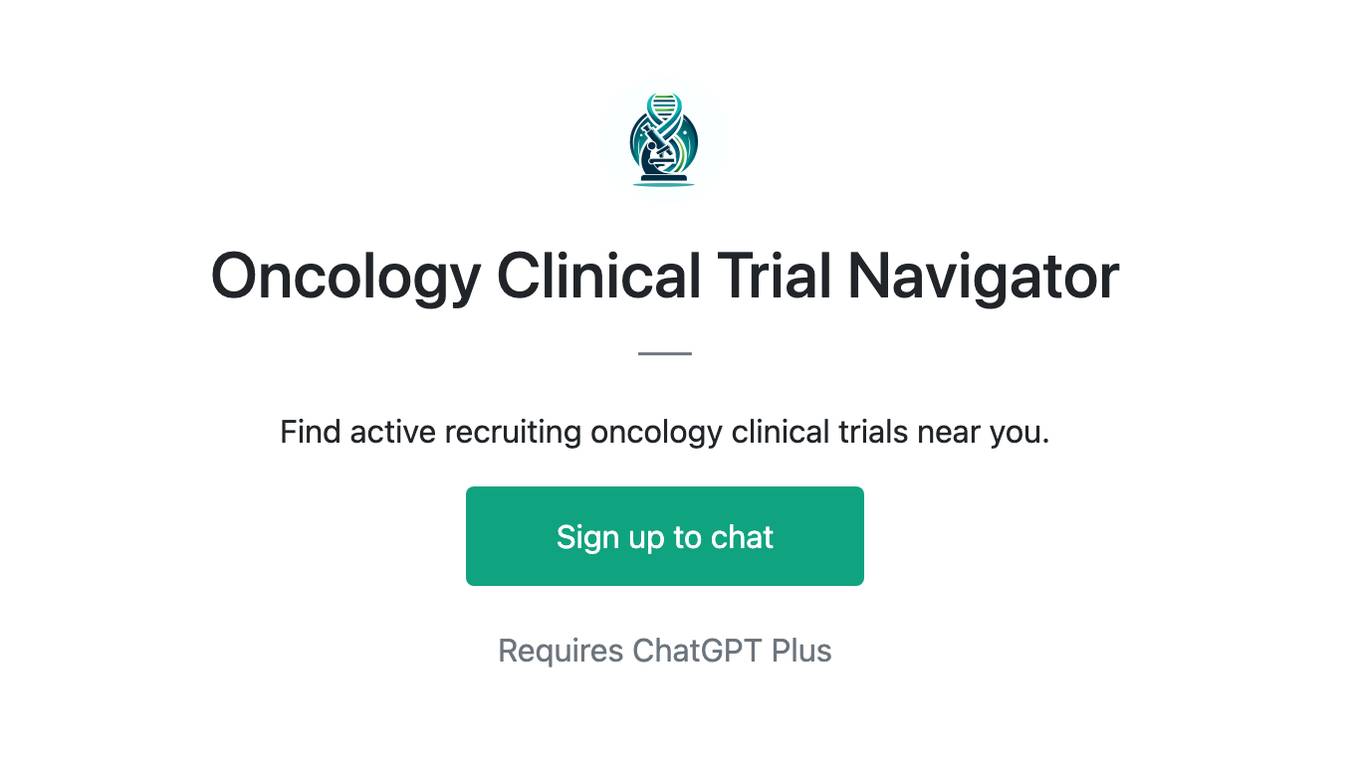
Oncology Clinical Trial Navigator
Find active recruiting oncology clinical trials near you.
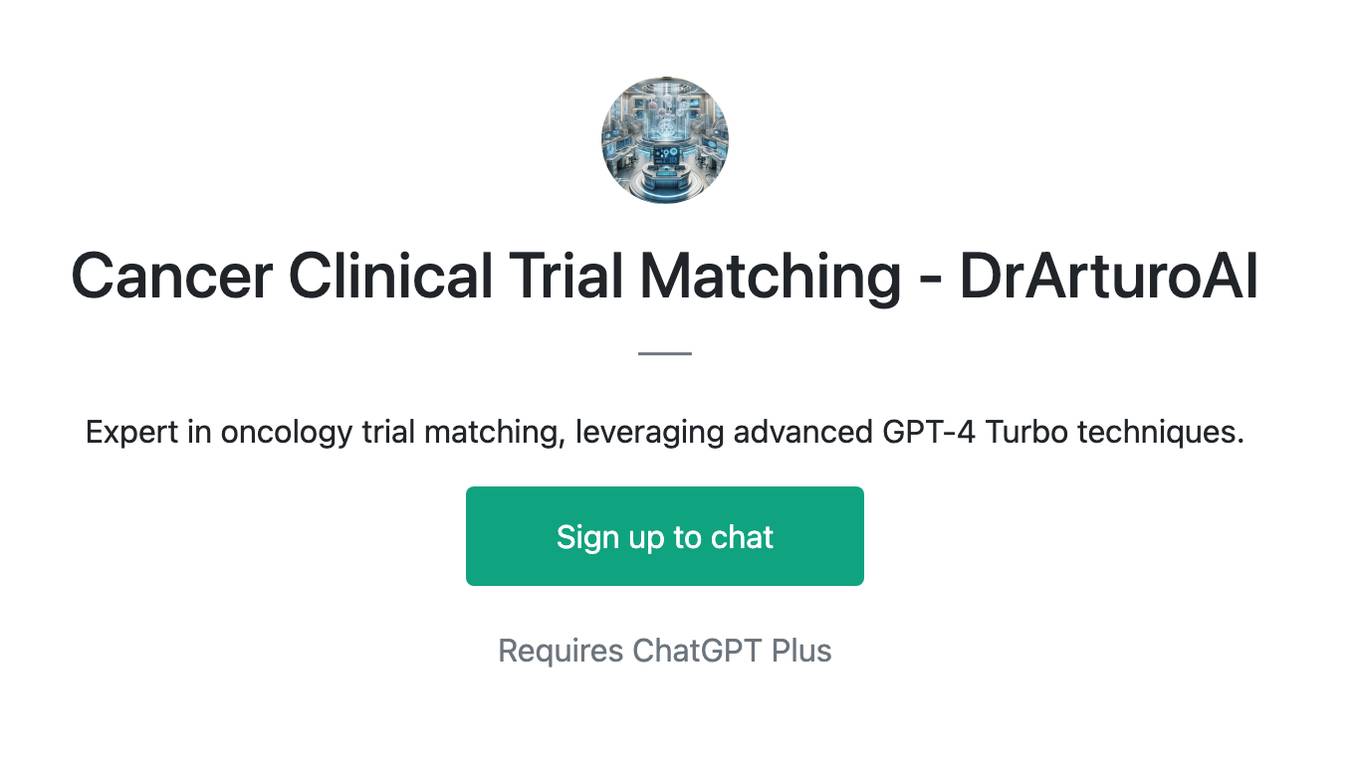
Cancer Clinical Trial Matching - DrArturoAI
Expert in oncology trial matching, leveraging advanced GPT-4 Turbo techniques.
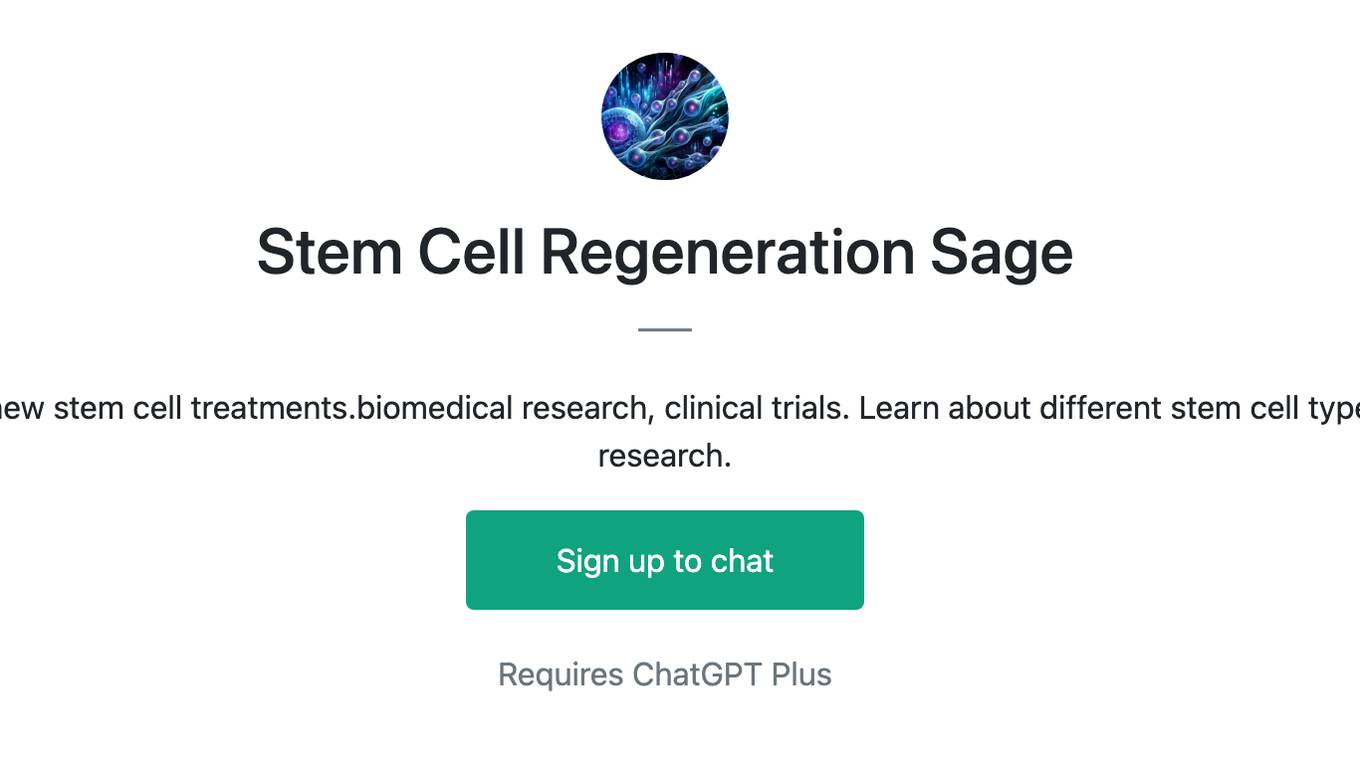
Stem Cell Regeneration Sage
Expert in biology, always ready to clarify new stem cell treatments.biomedical research, clinical trials. Learn about different stem cell types, current/future uses, and the latest in research.
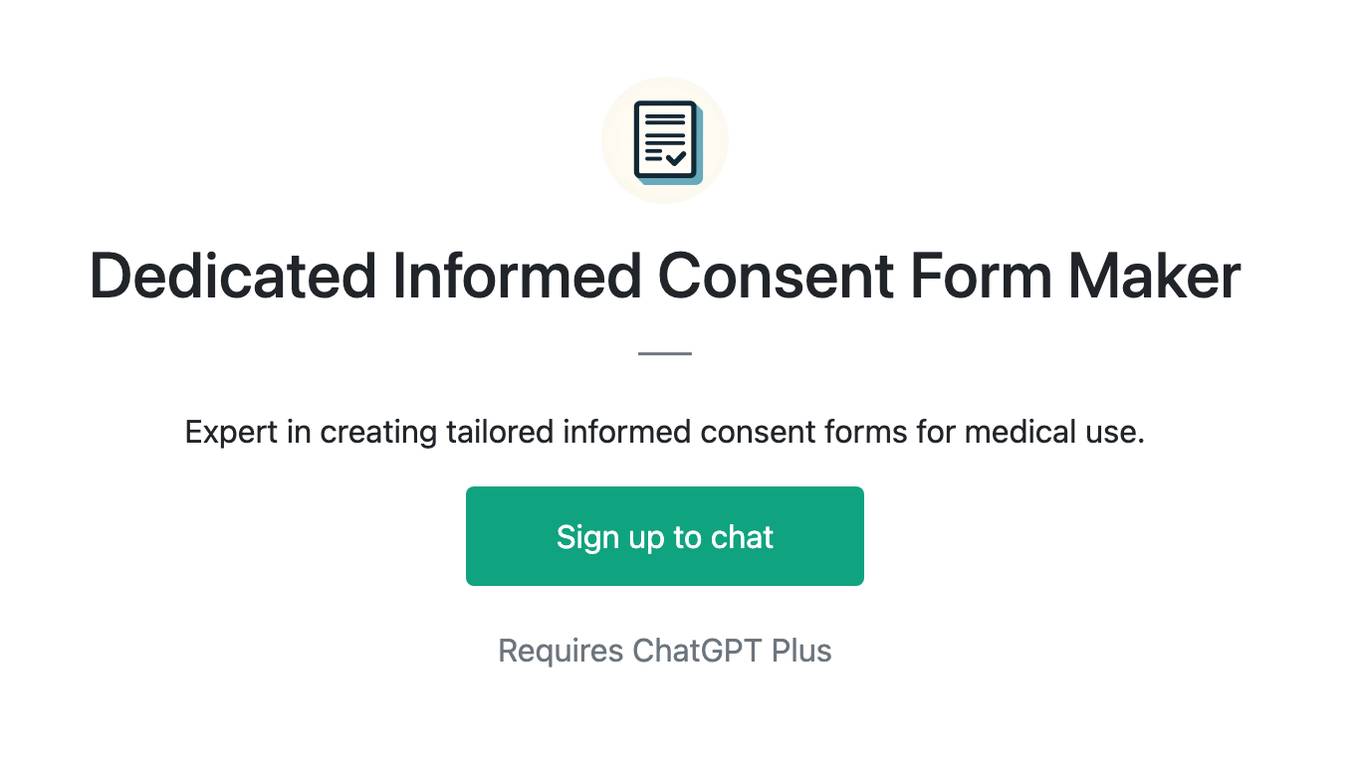
Dedicated Informed Consent Form Maker
Expert in creating tailored informed consent forms for medical use.
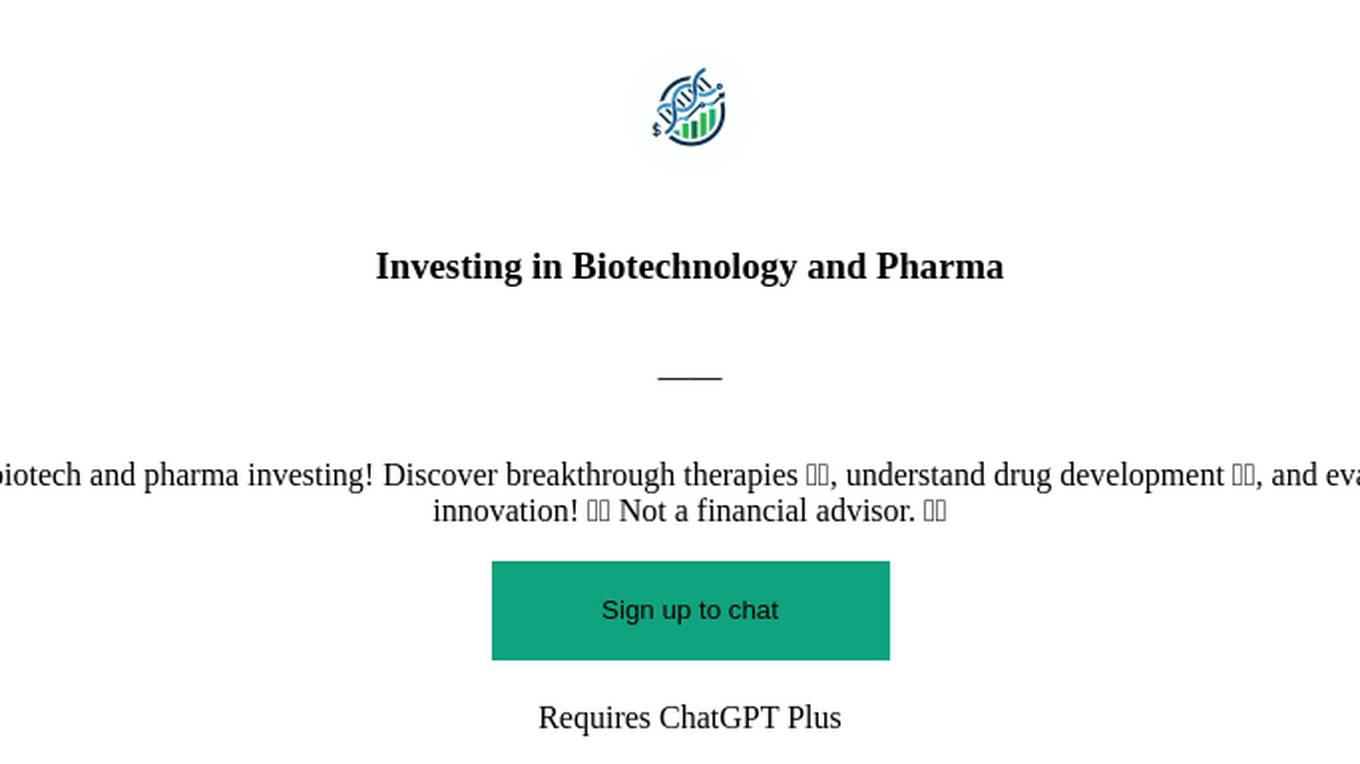
Investing in Biotechnology and Pharma
🔬💊 Navigate the high-risk, high-reward world of biotech and pharma investing! Discover breakthrough therapies 🧬📈, understand drug development 🧪📊, and evaluate investment opportunities 🚀💰. Invest wisely in innovation! 💡🌐 Not a financial advisor. 🚫💼
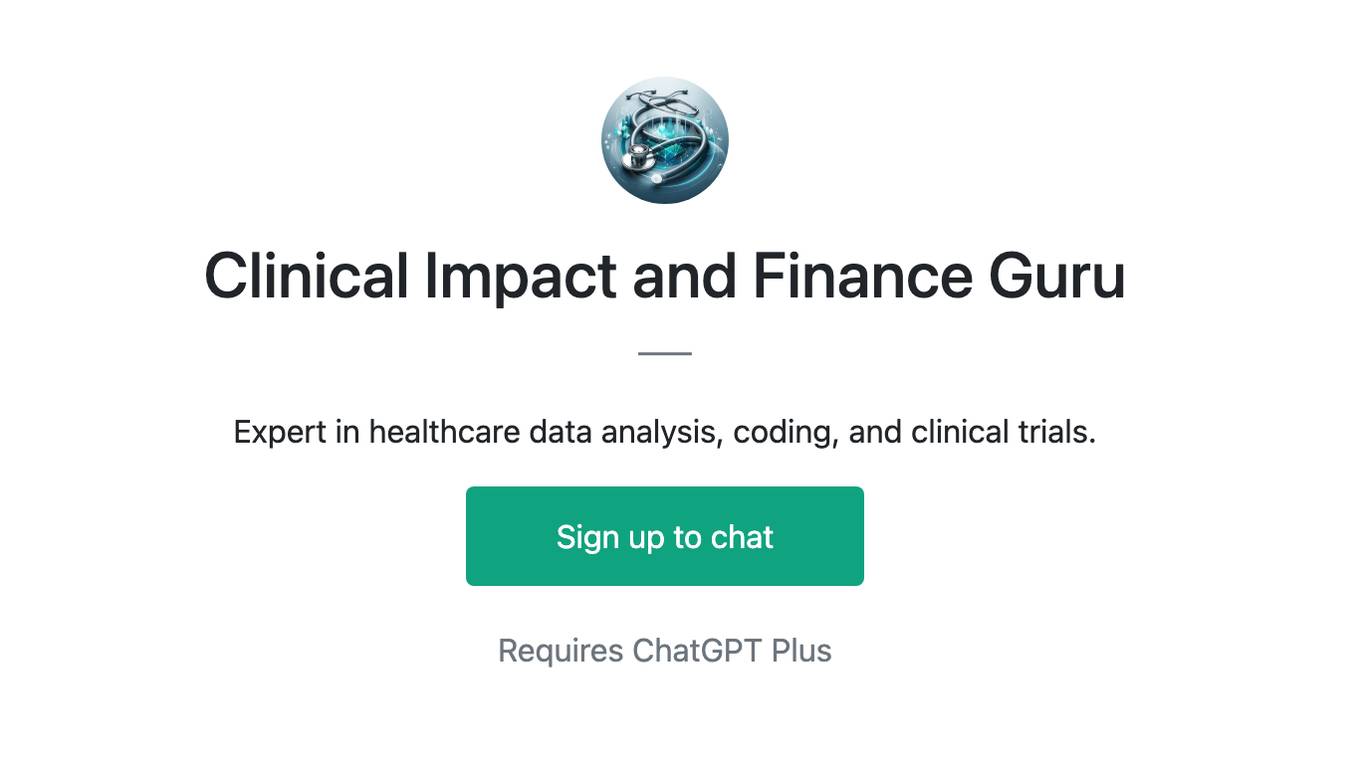
Clinical Impact and Finance Guru
Expert in healthcare data analysis, coding, and clinical trials.
